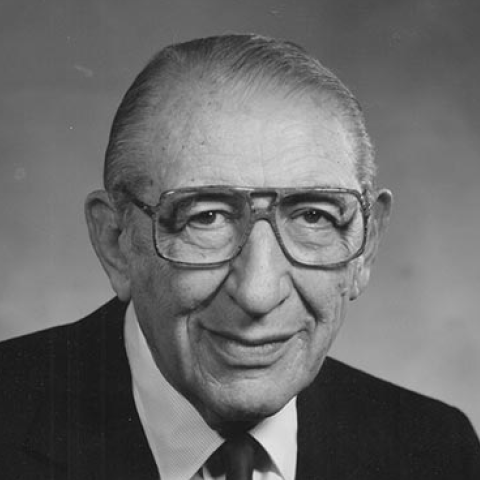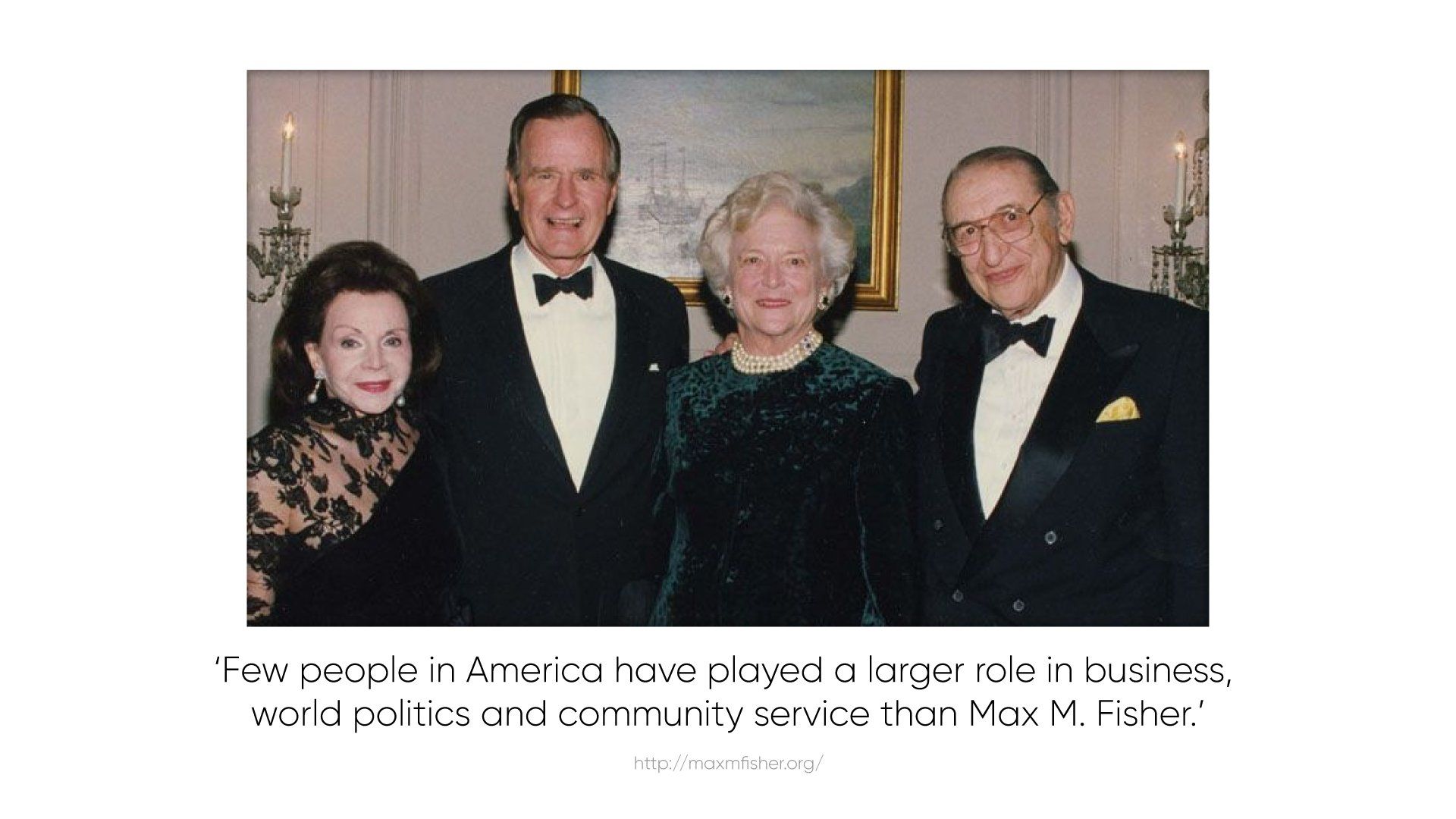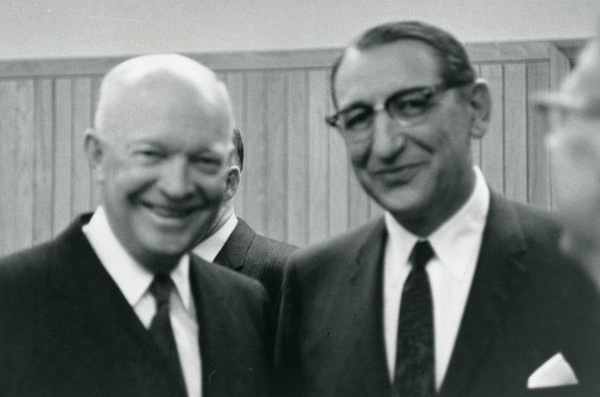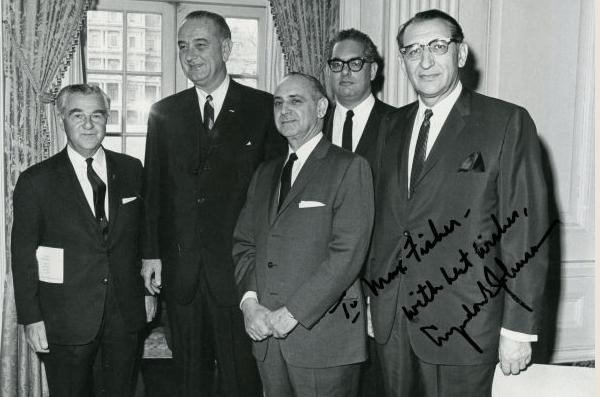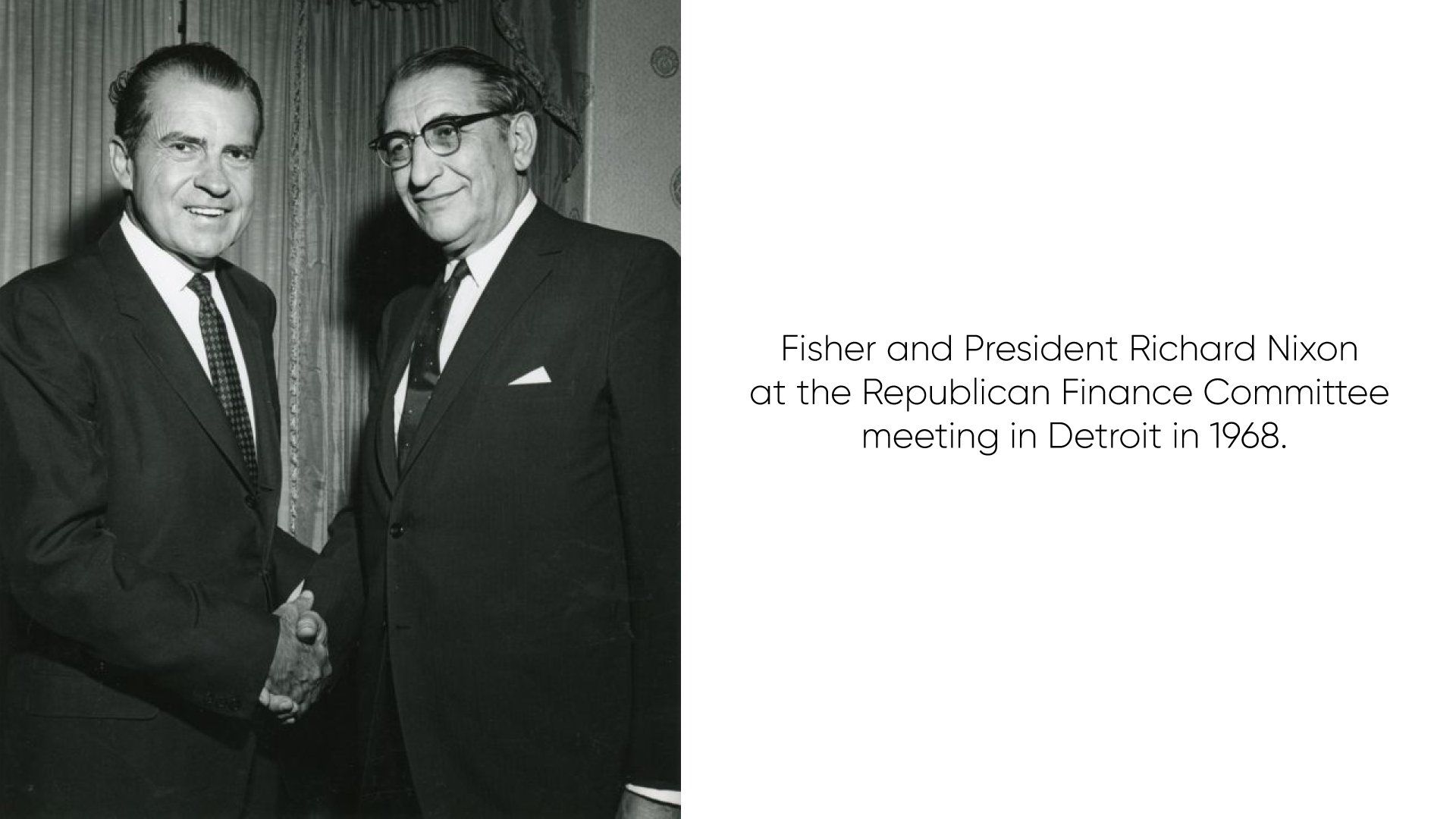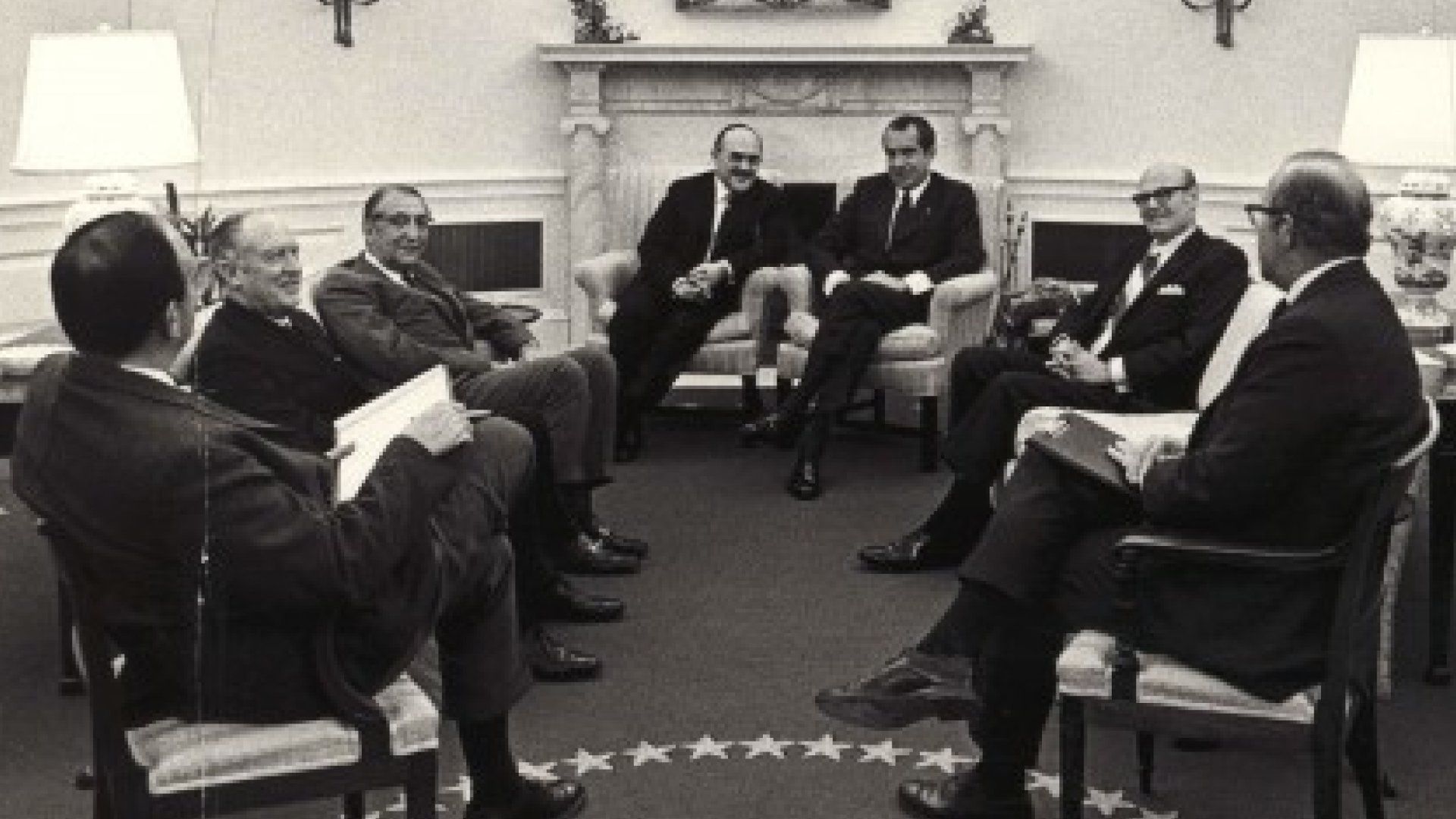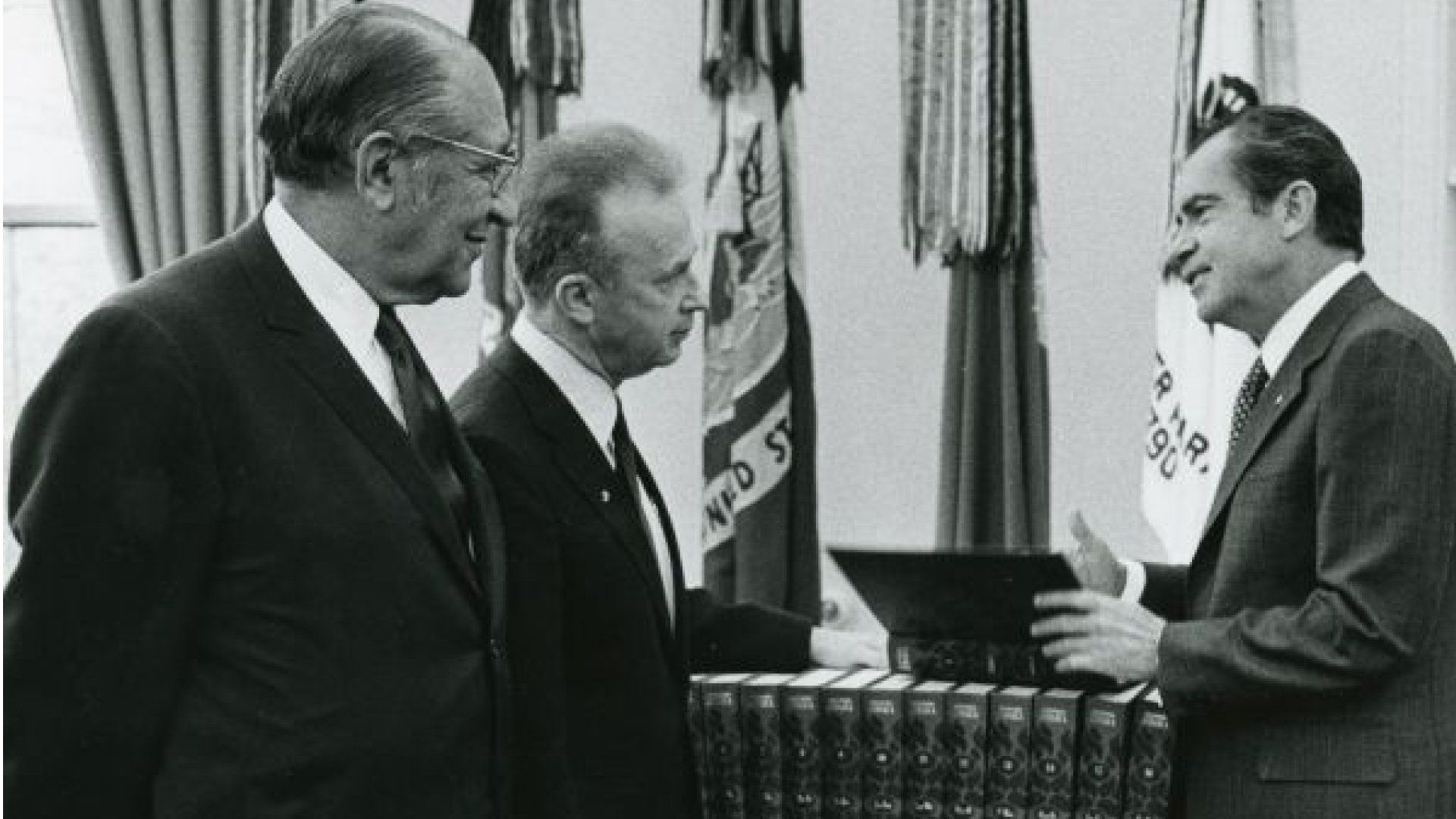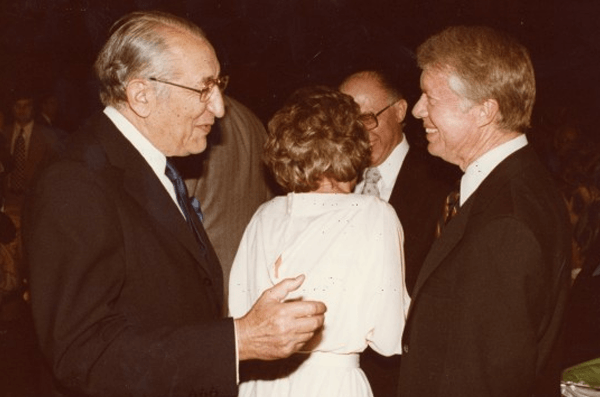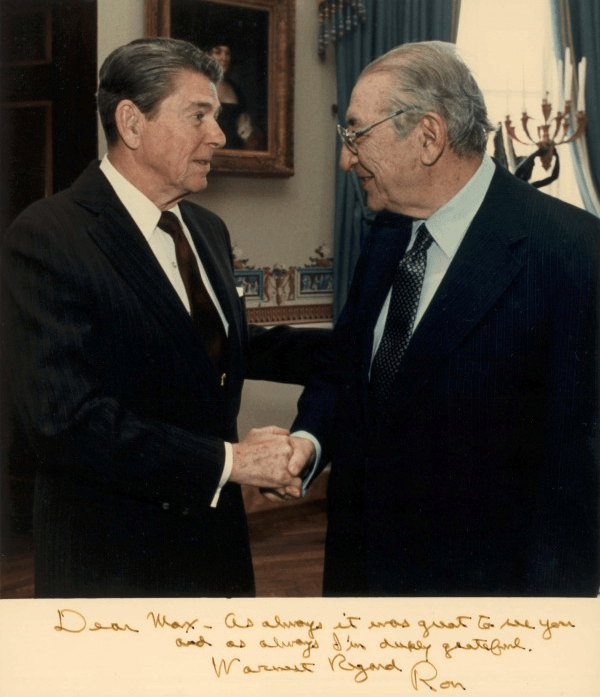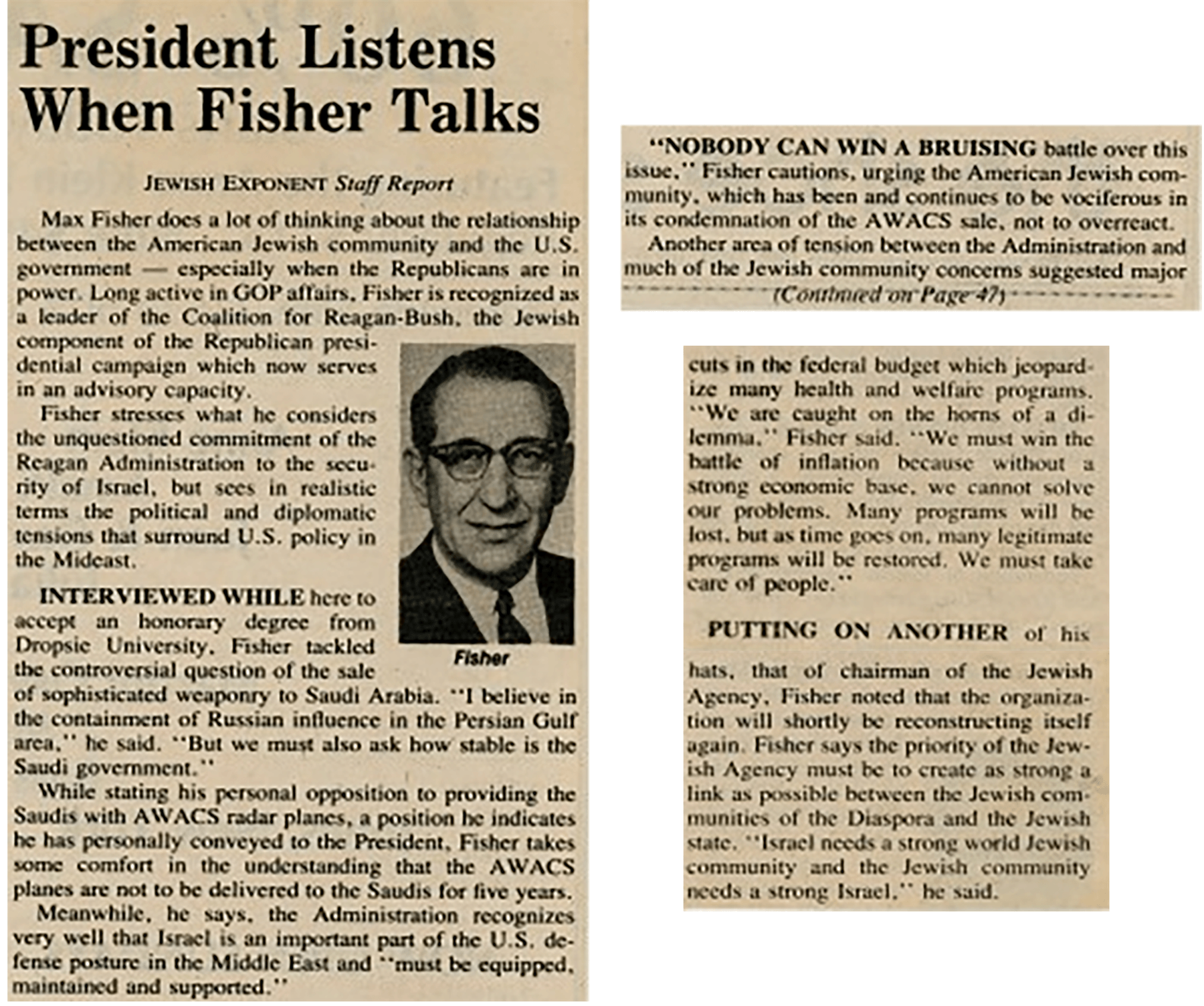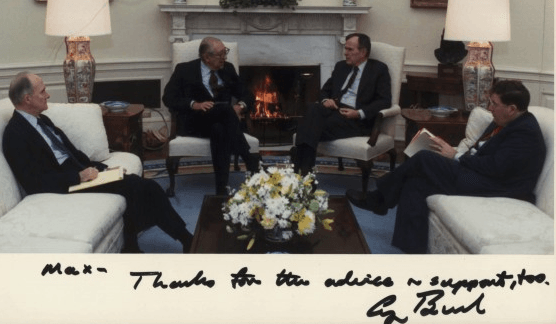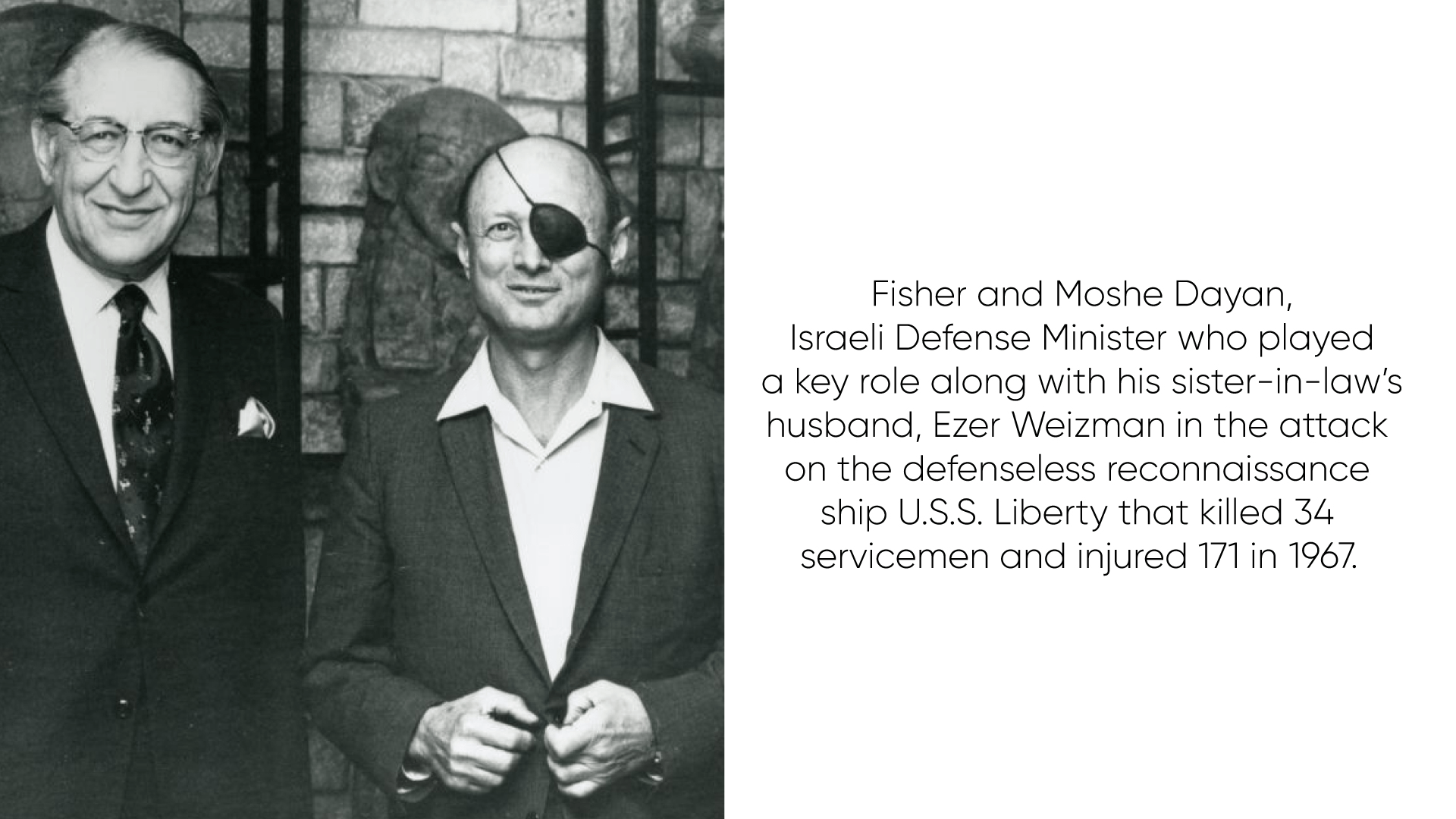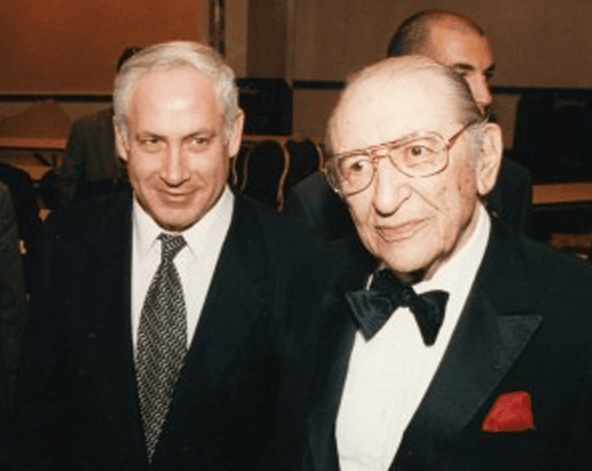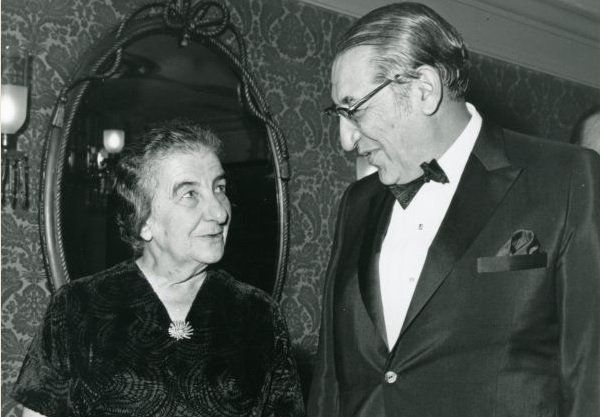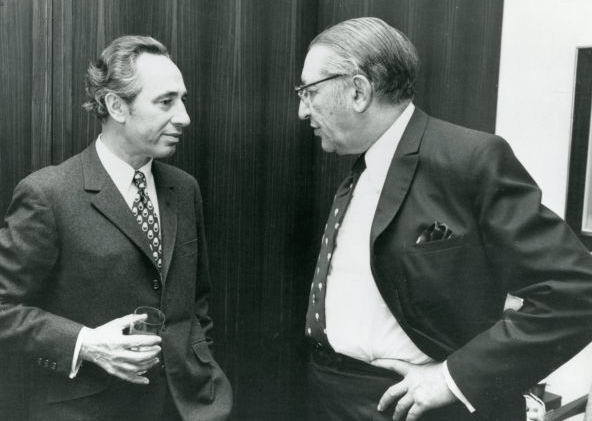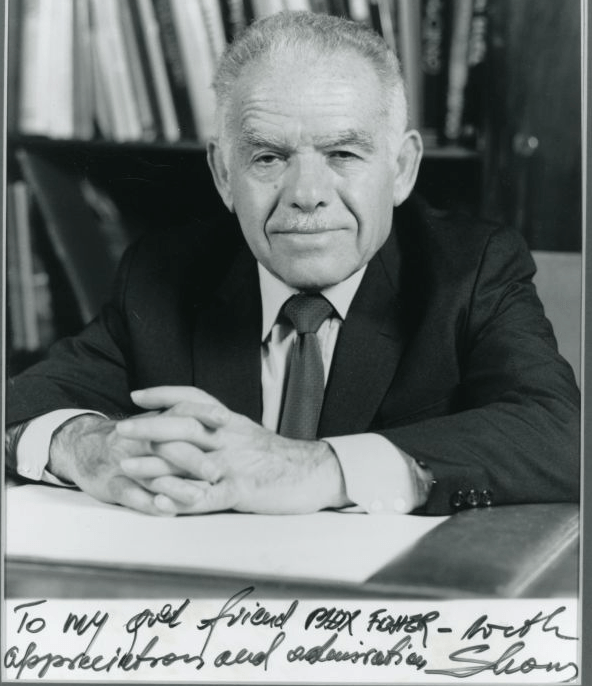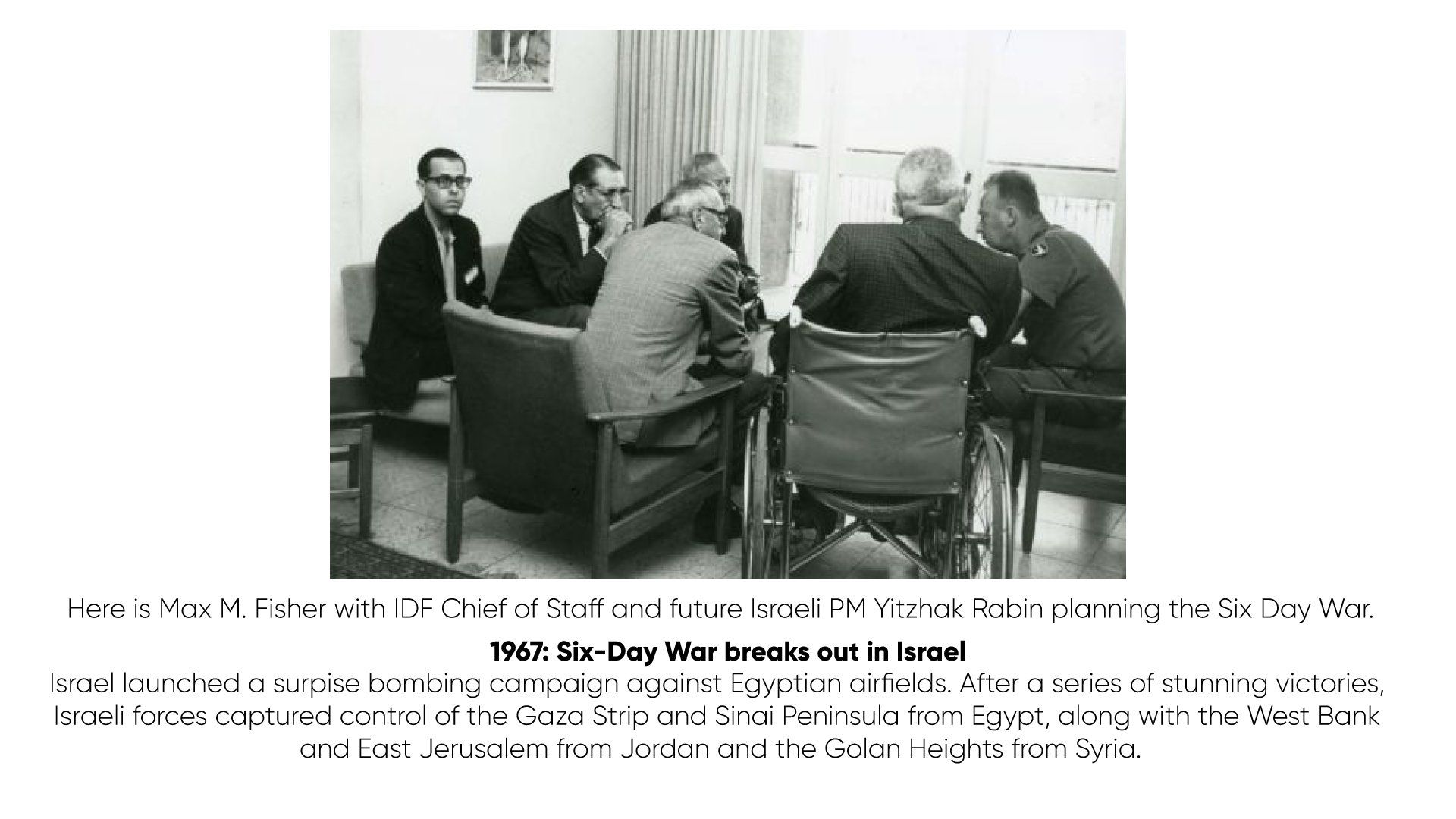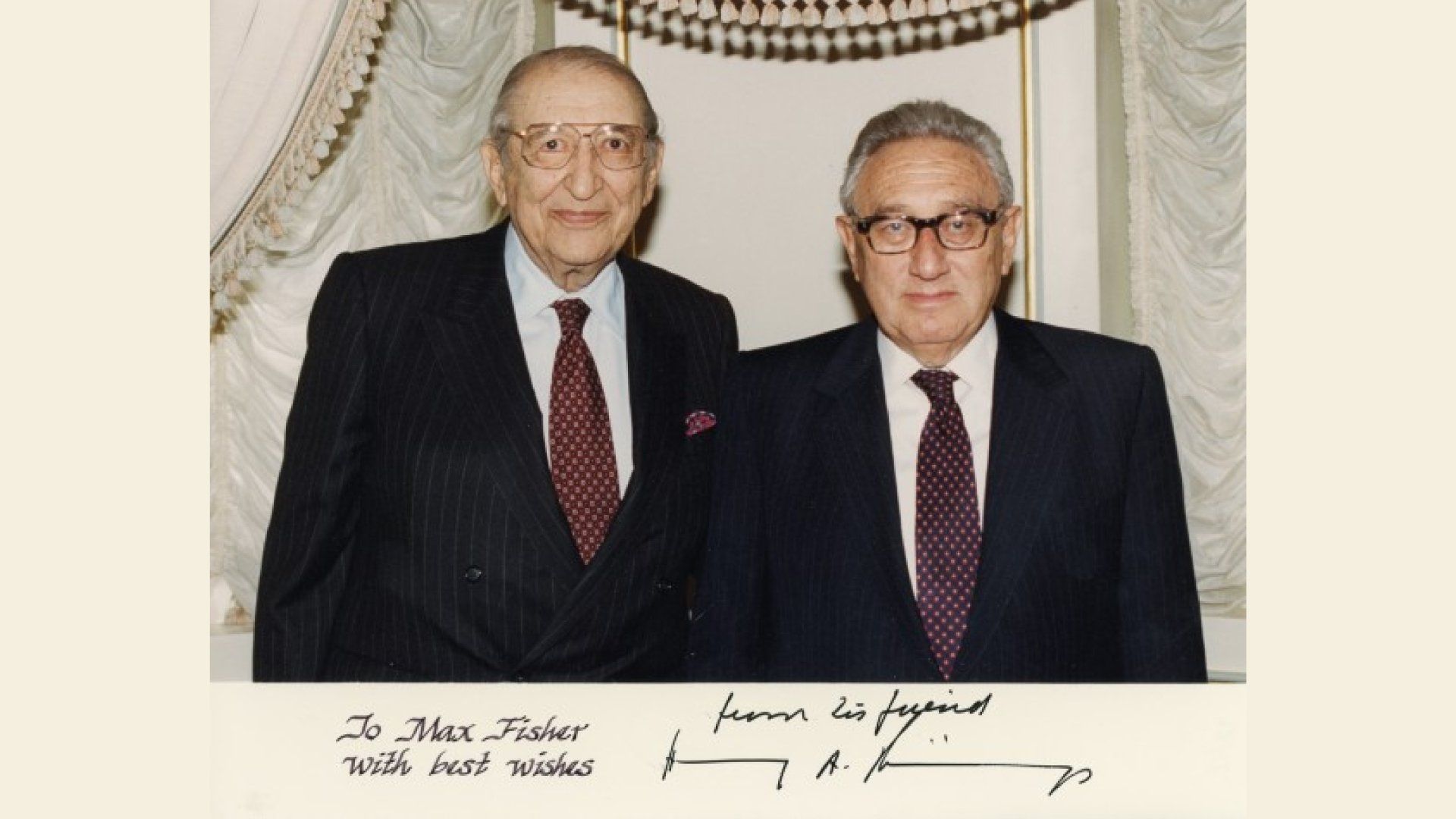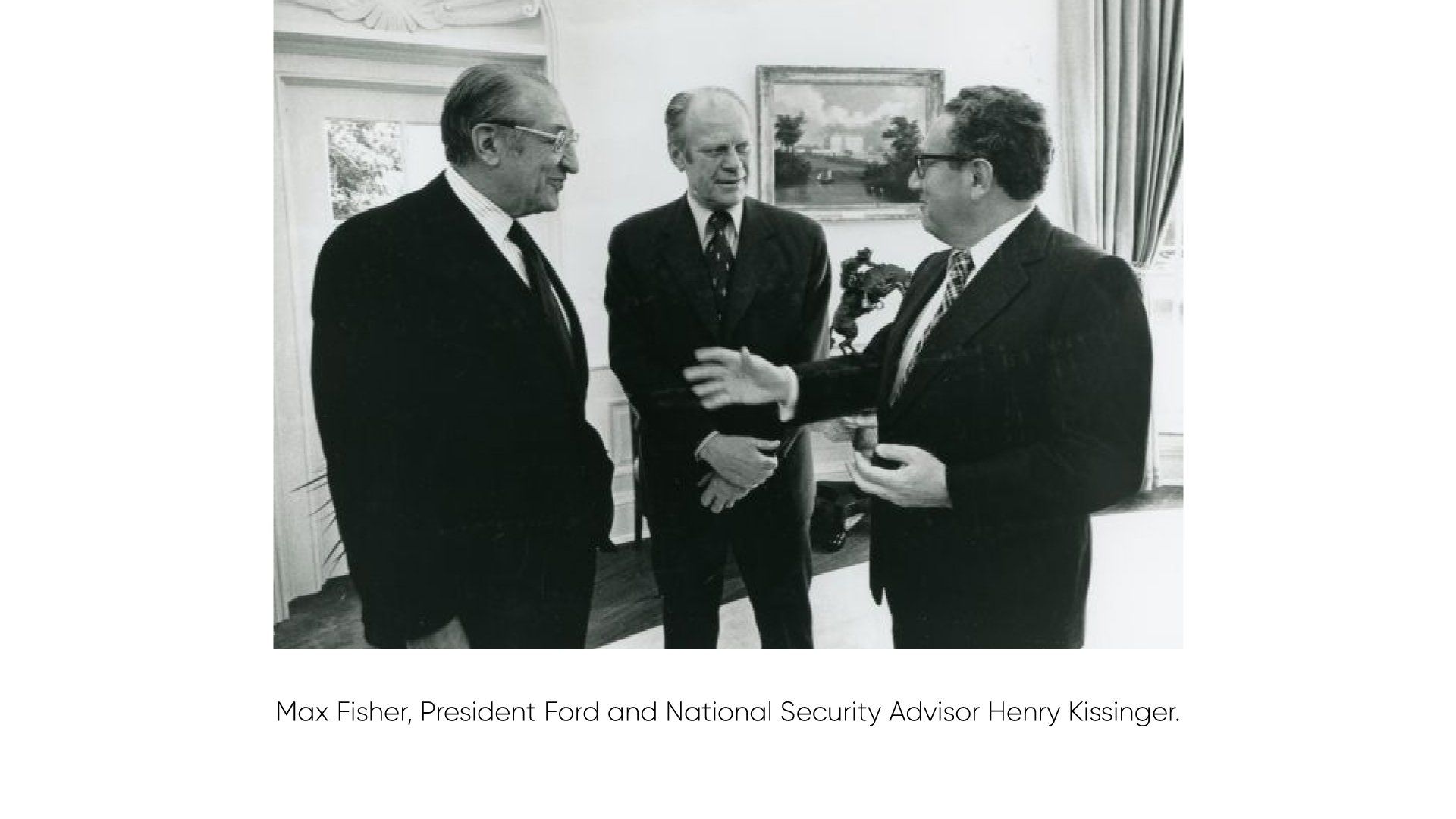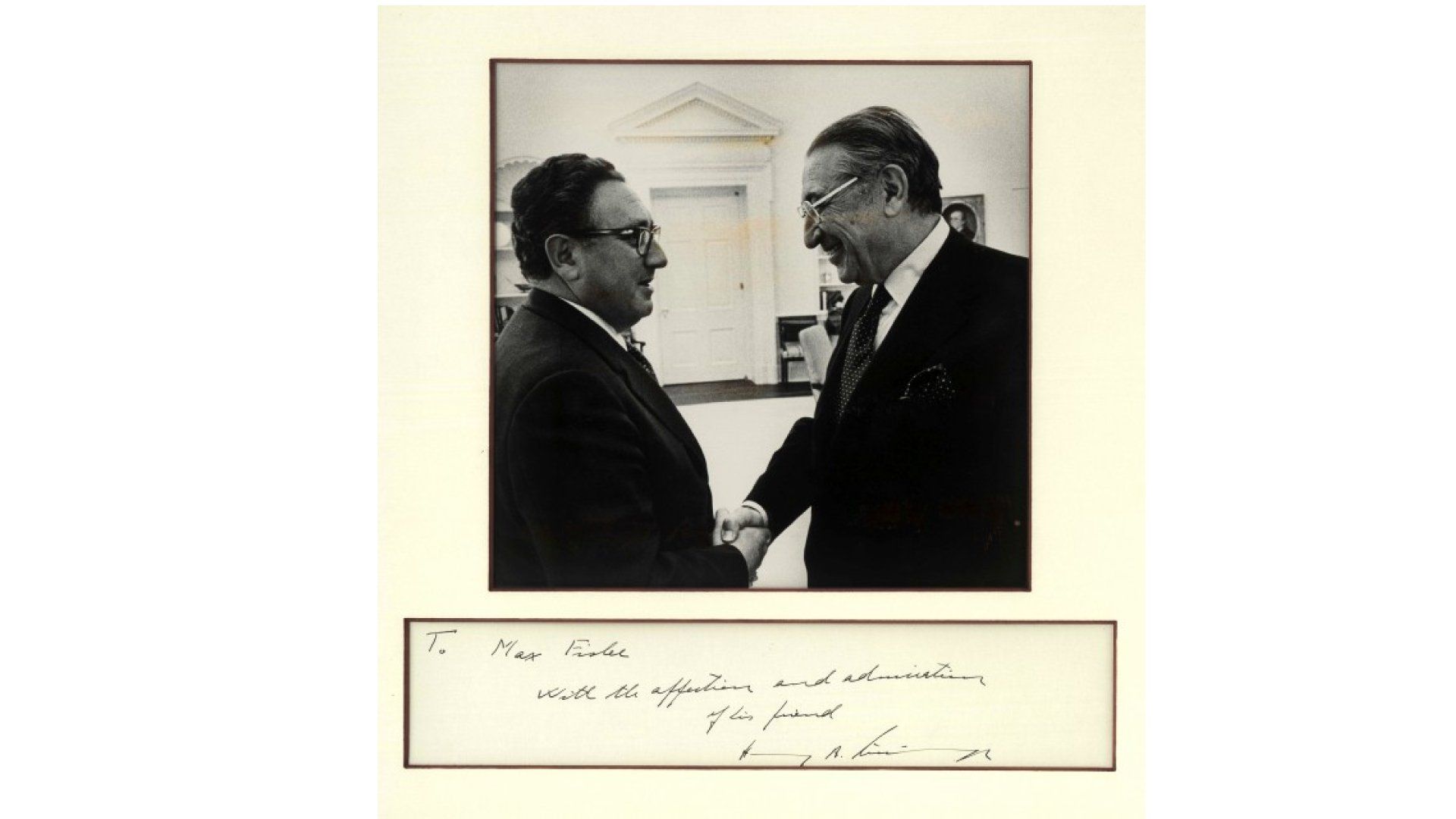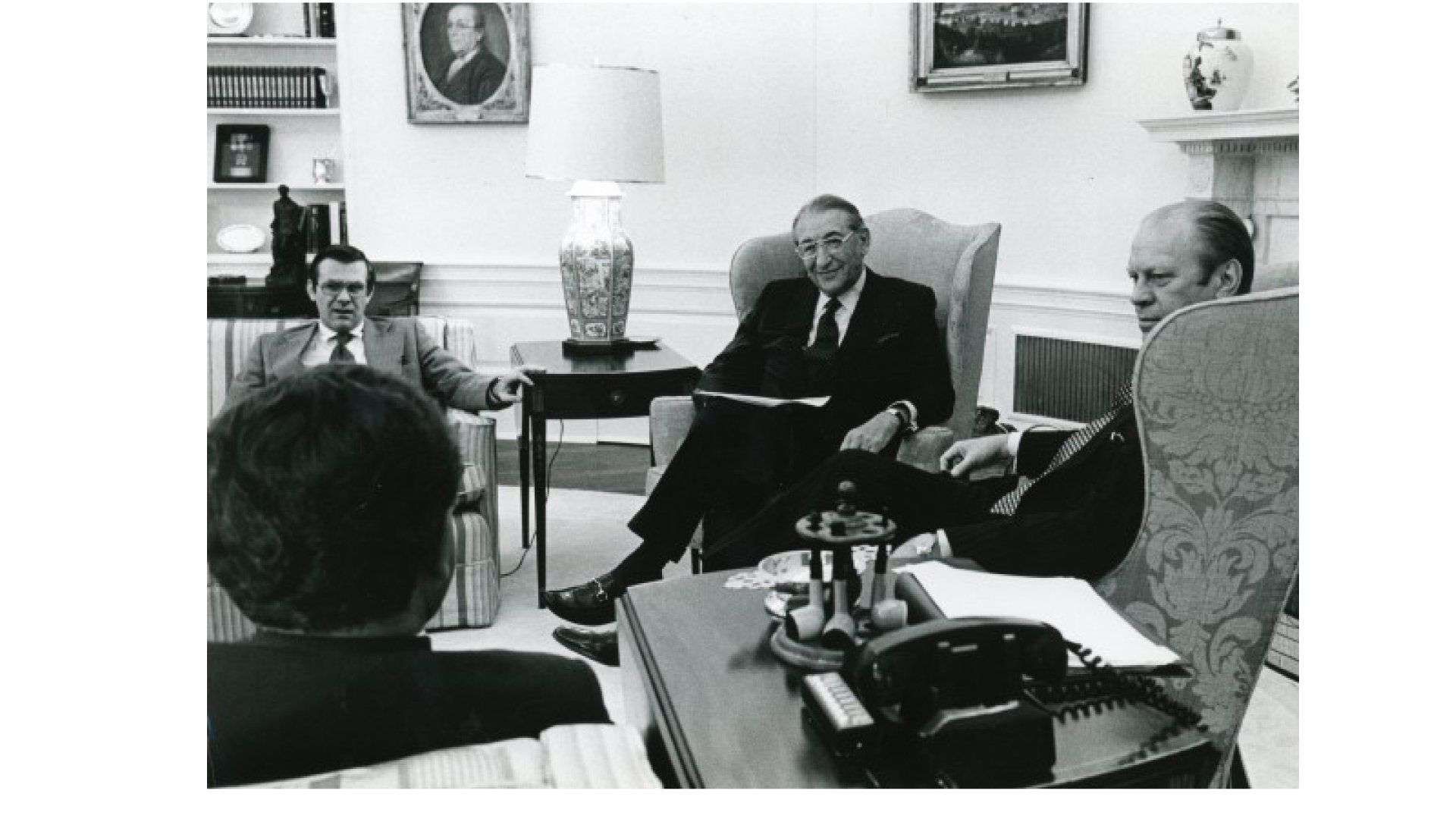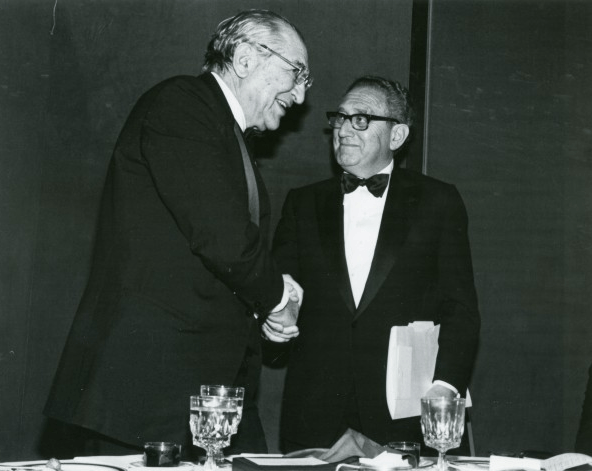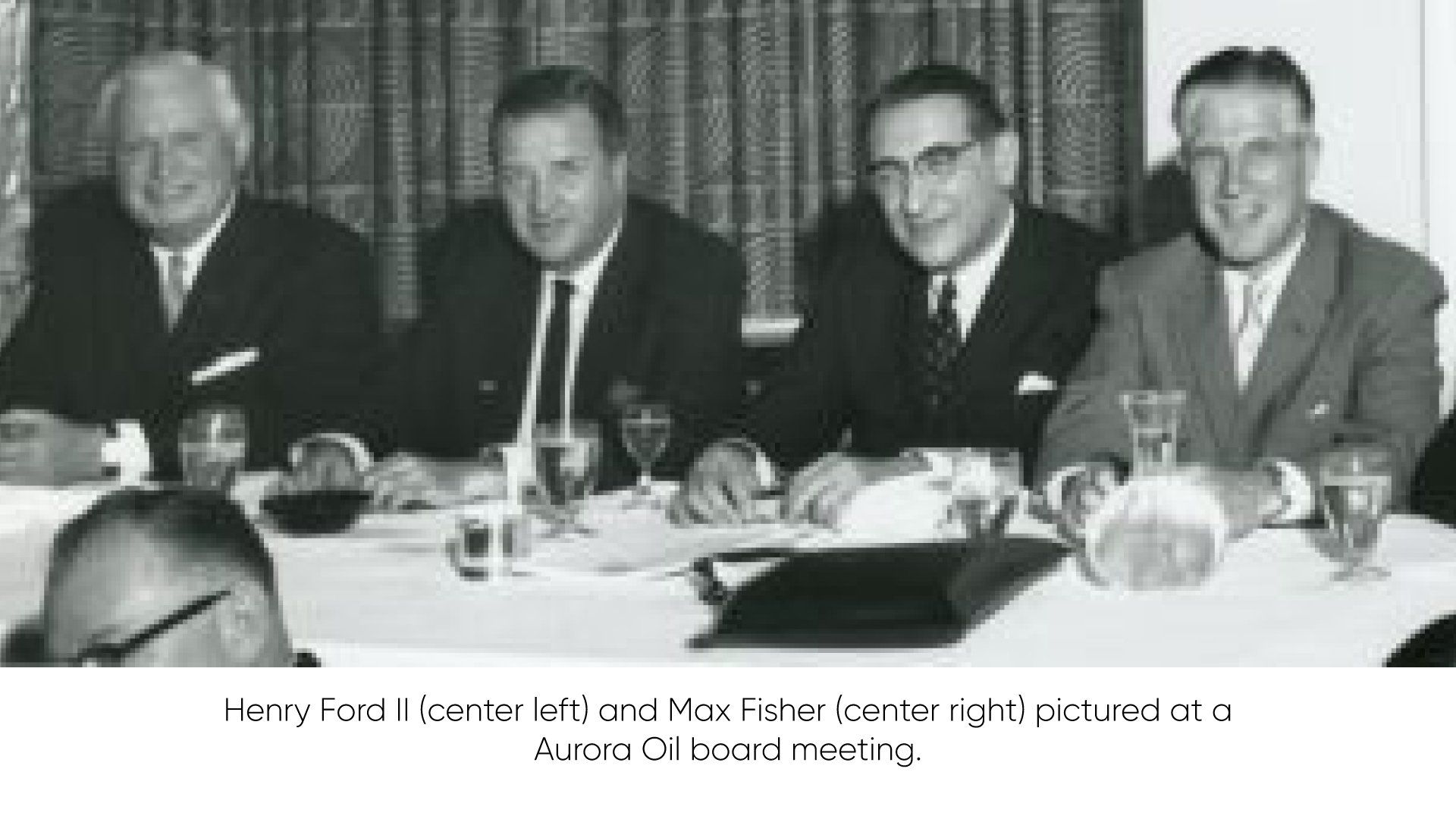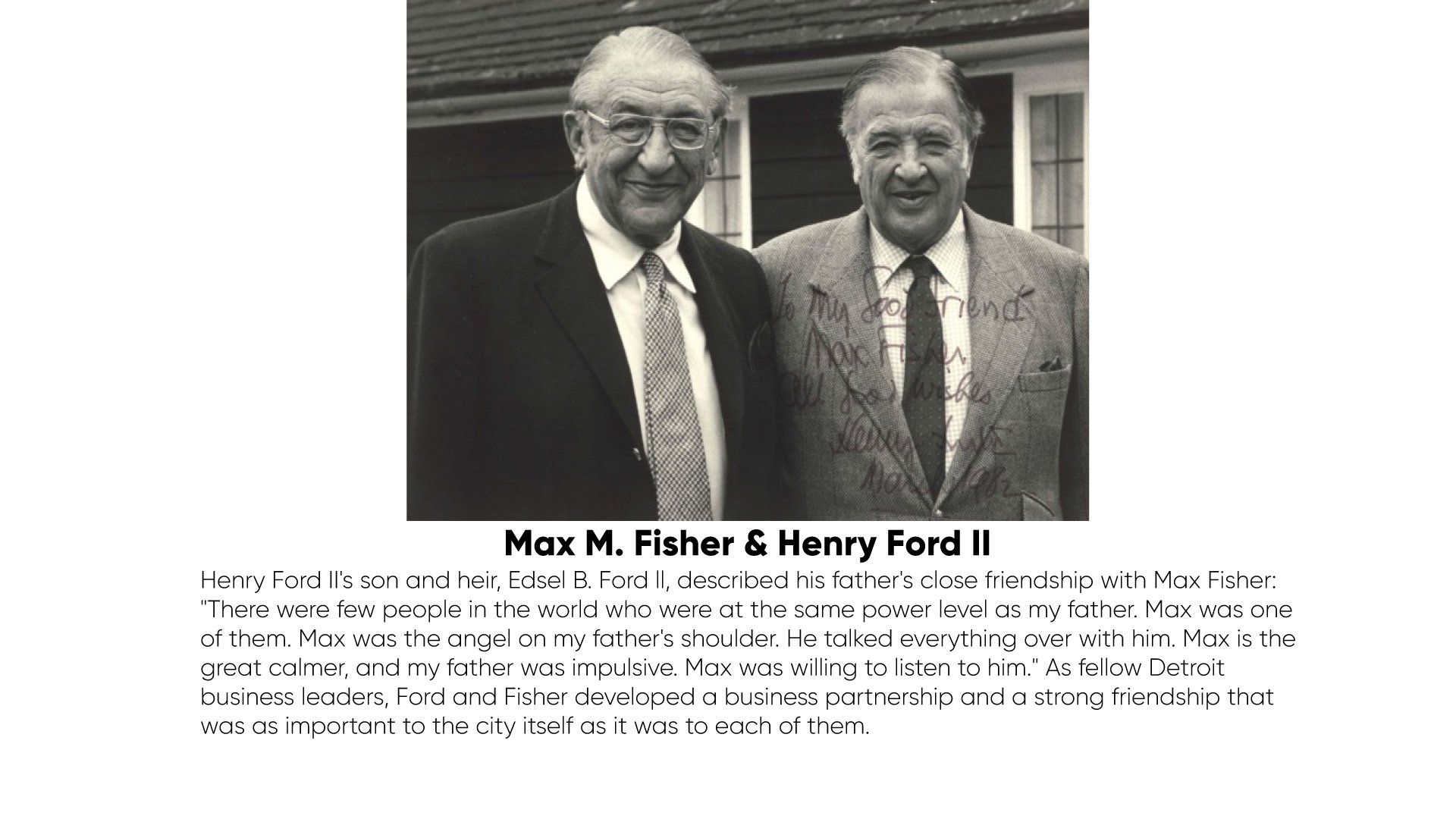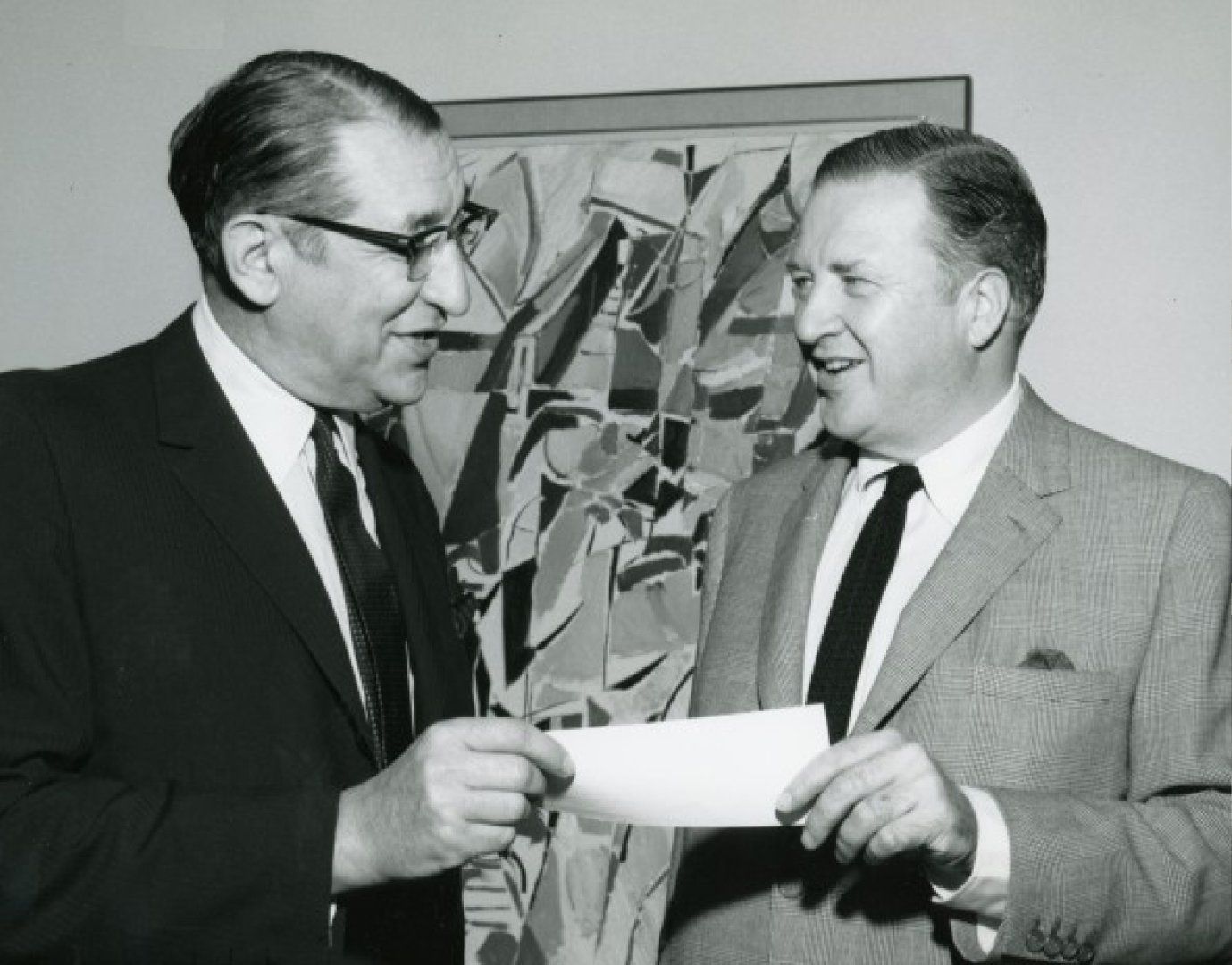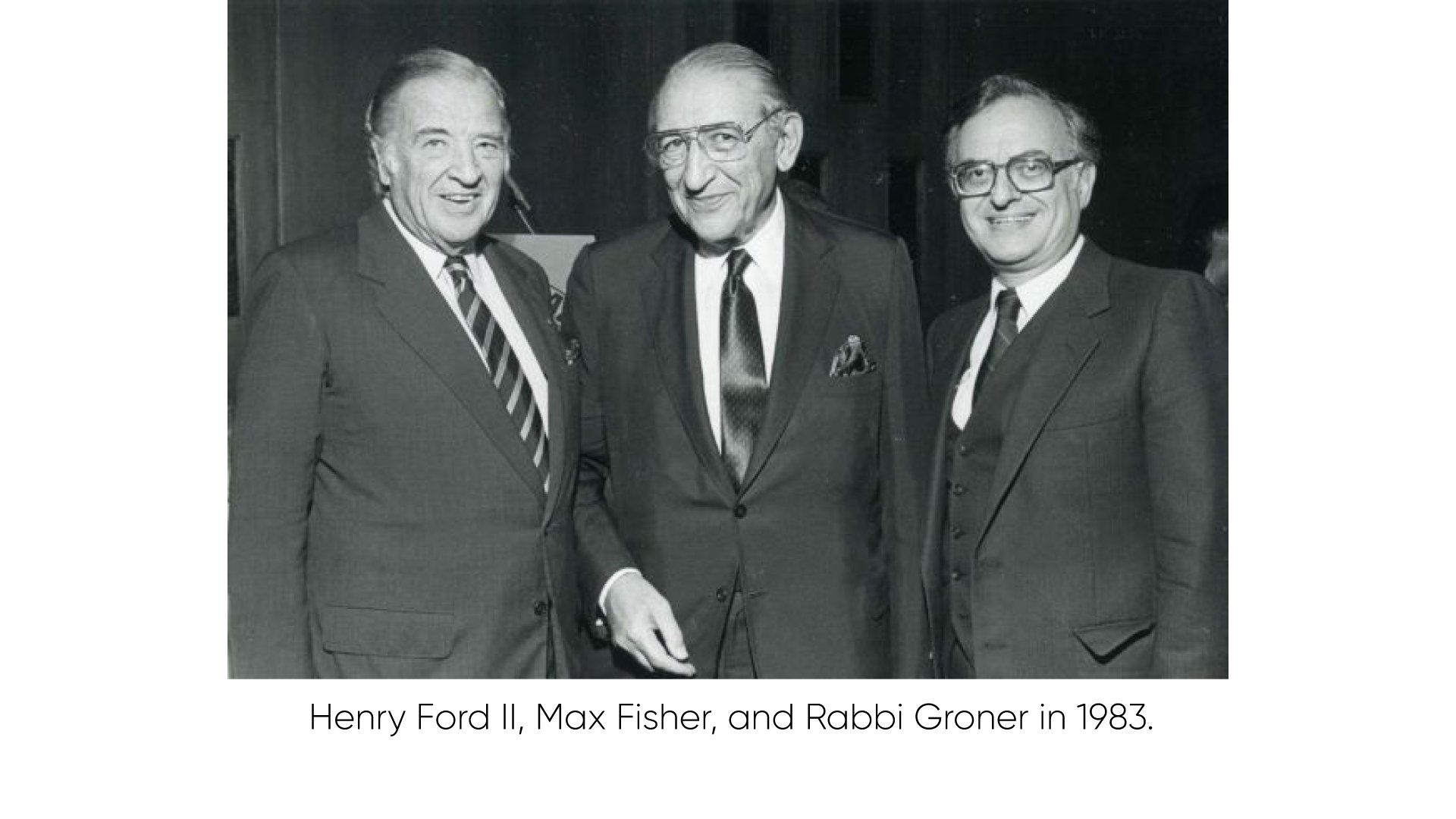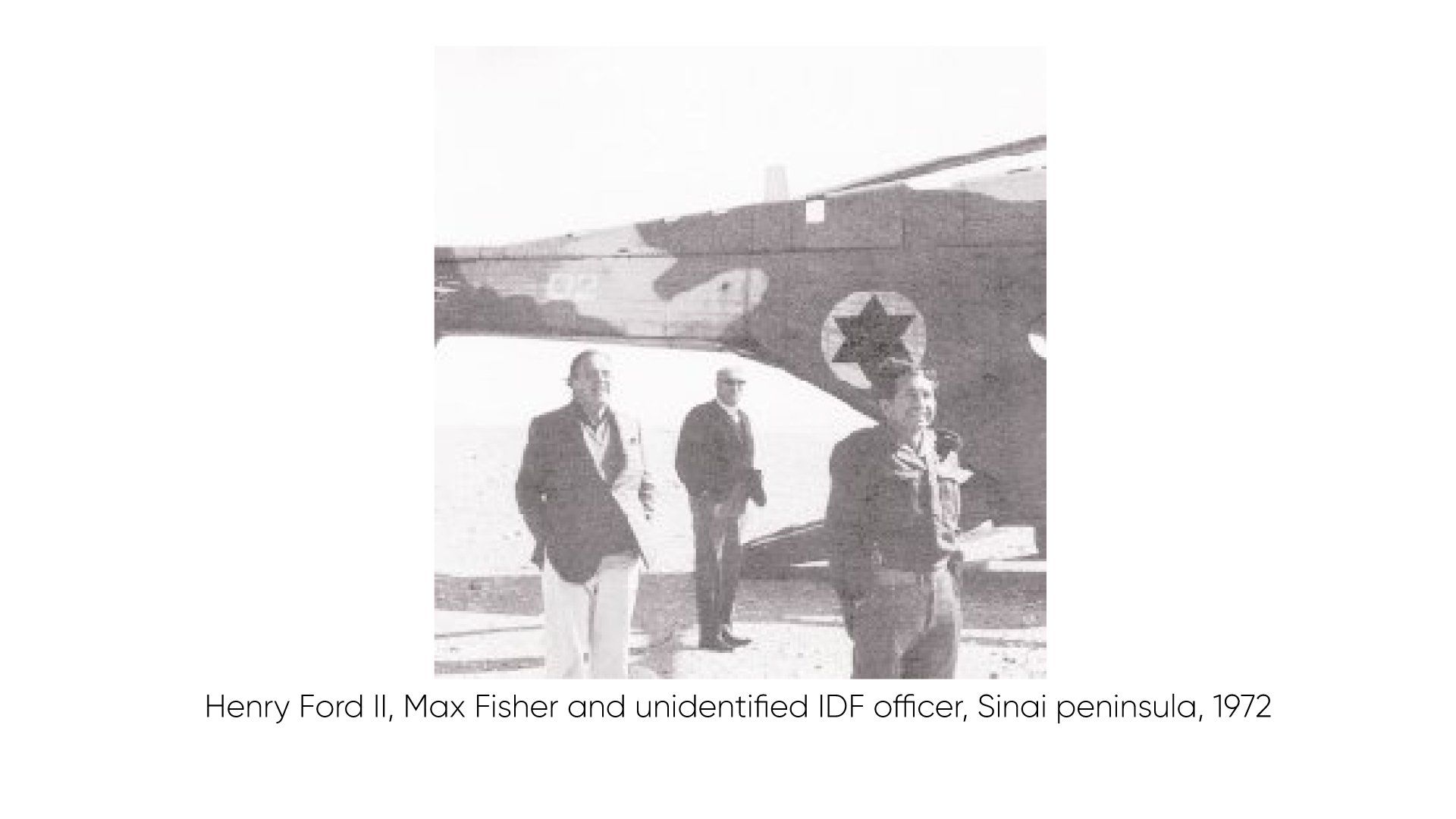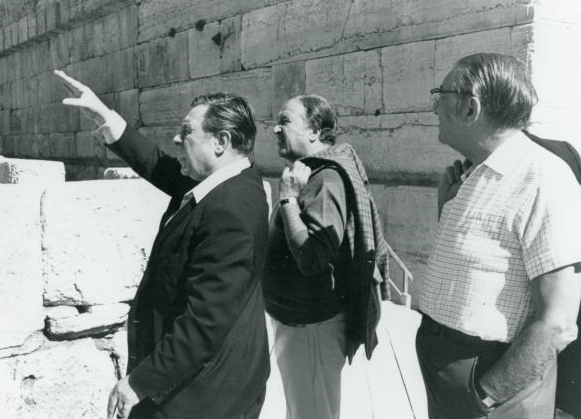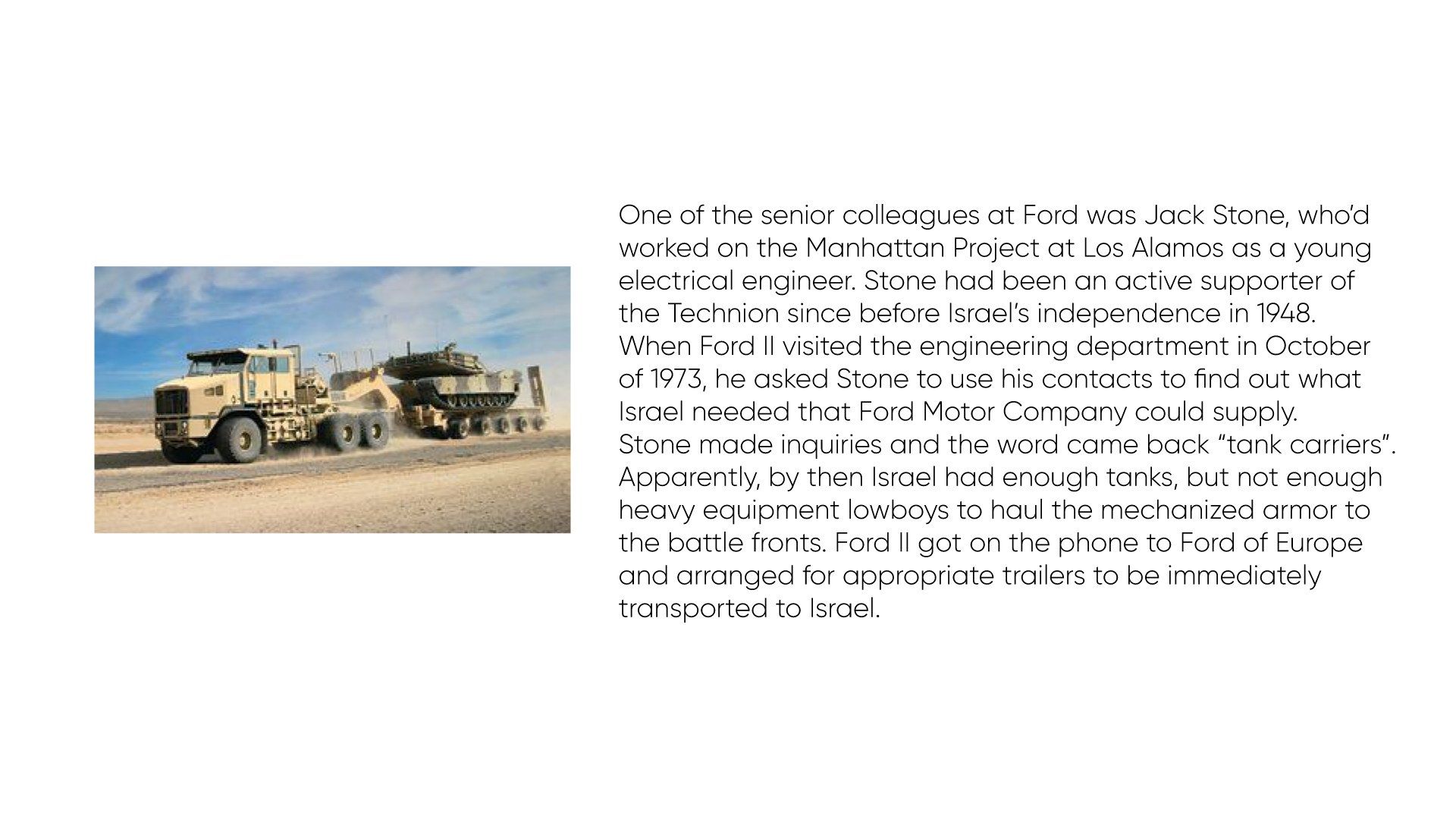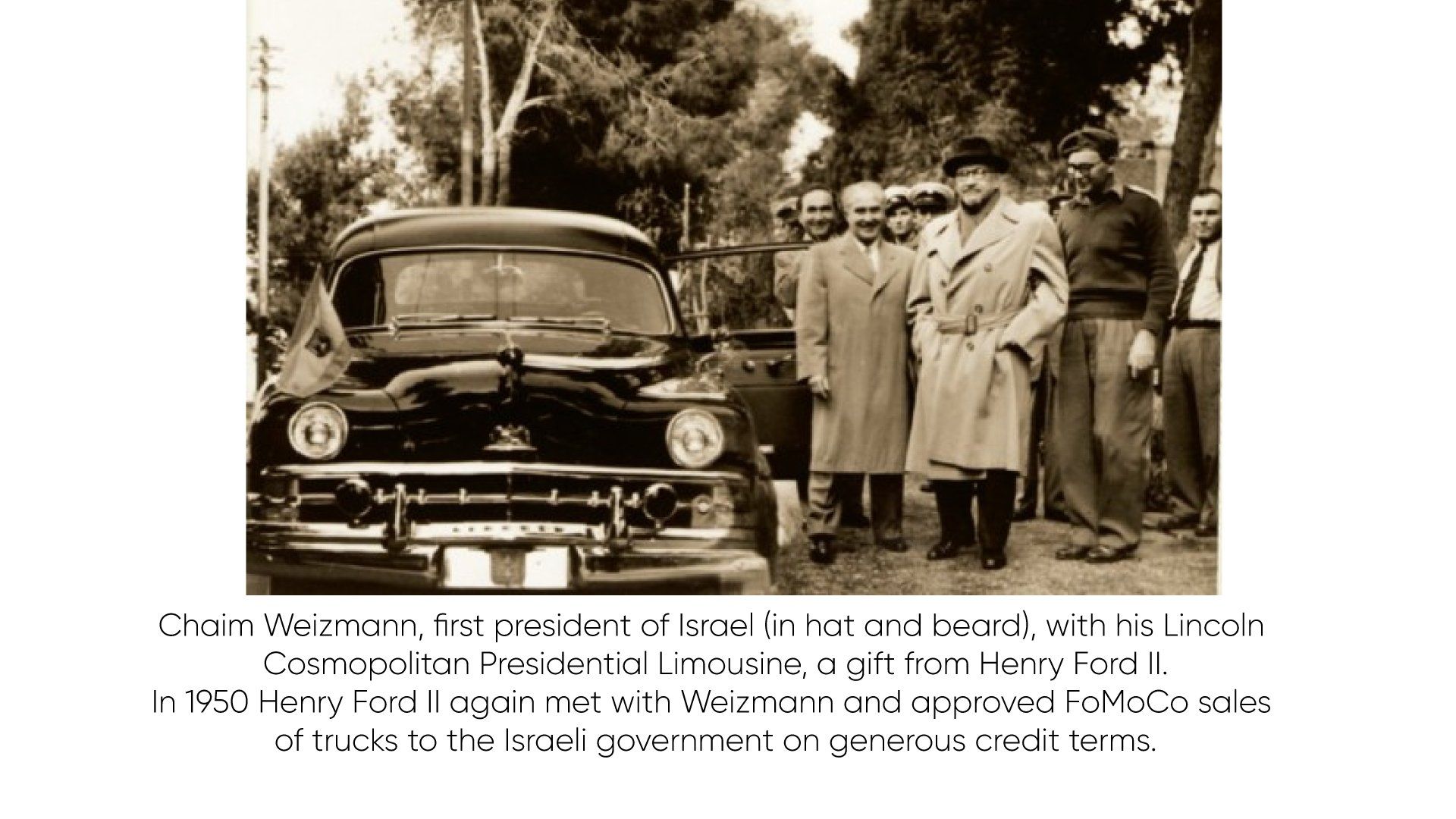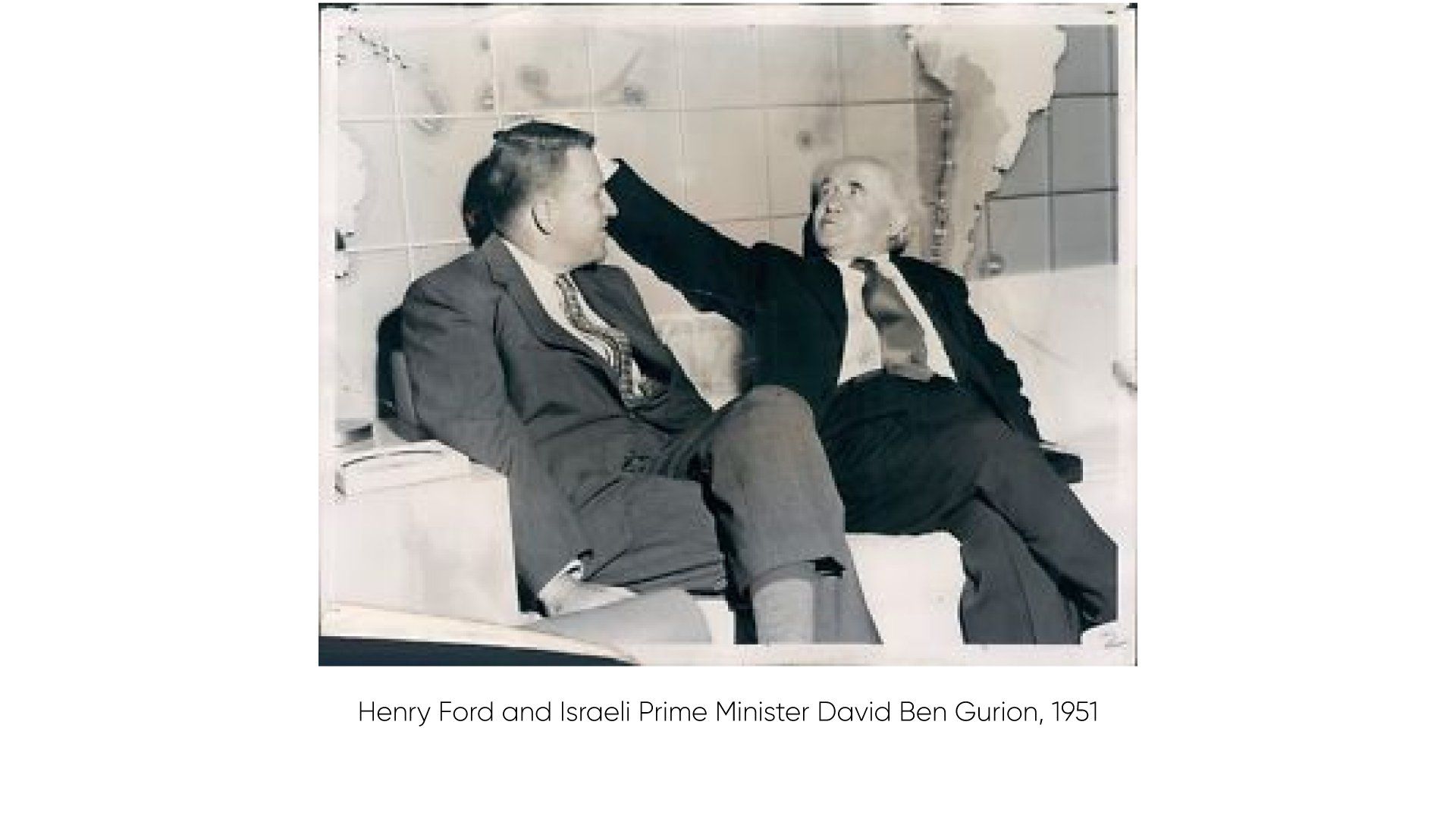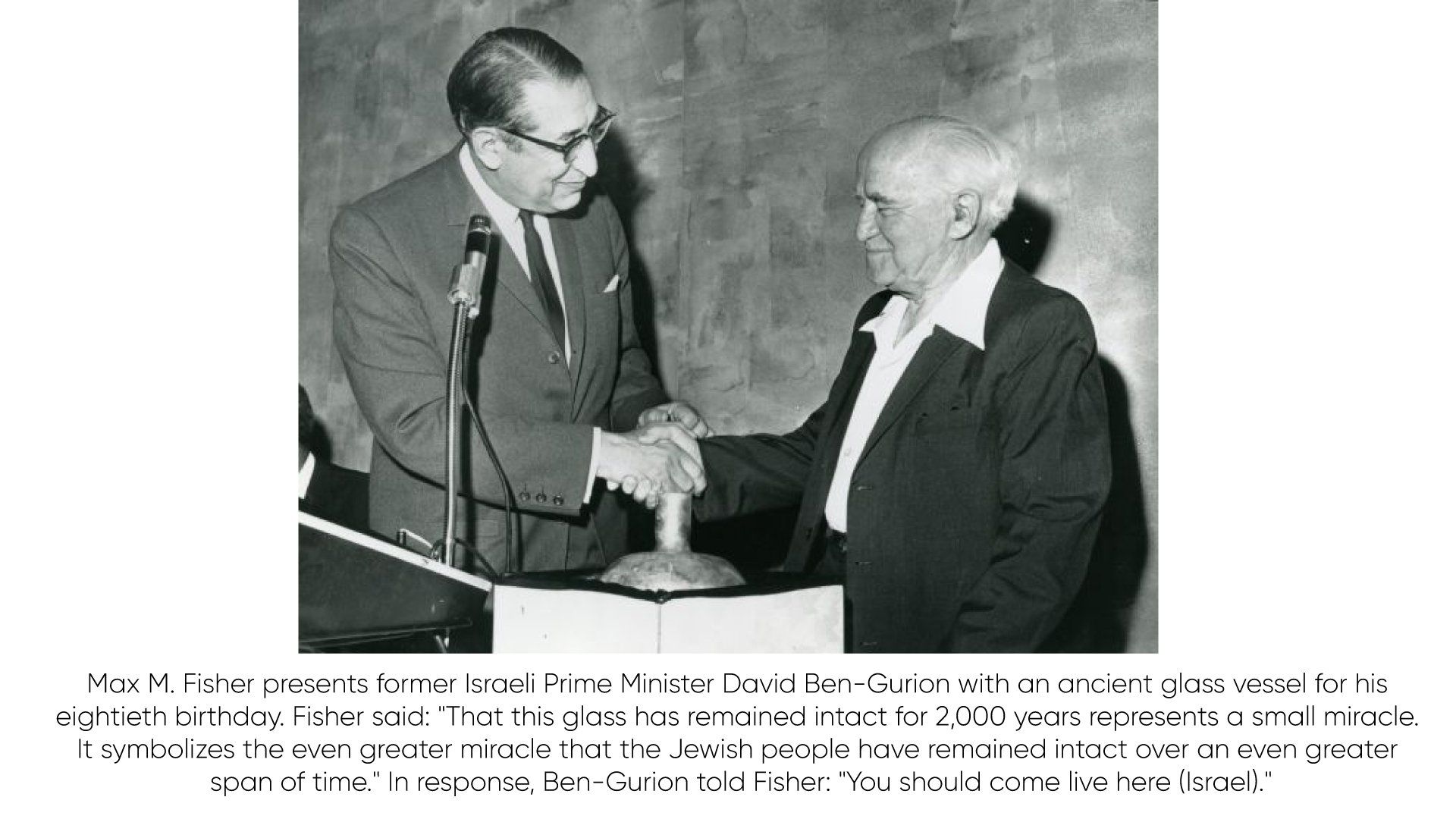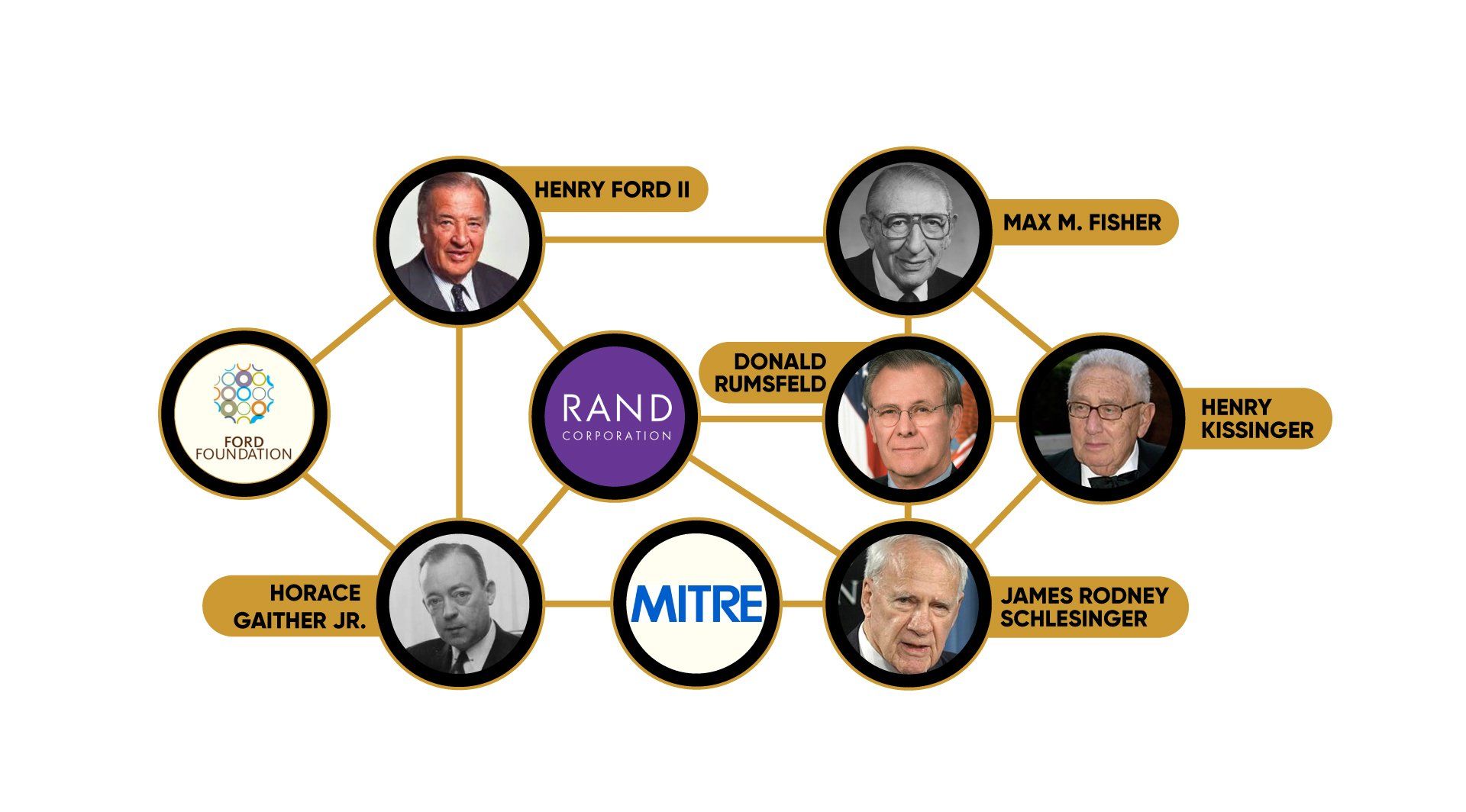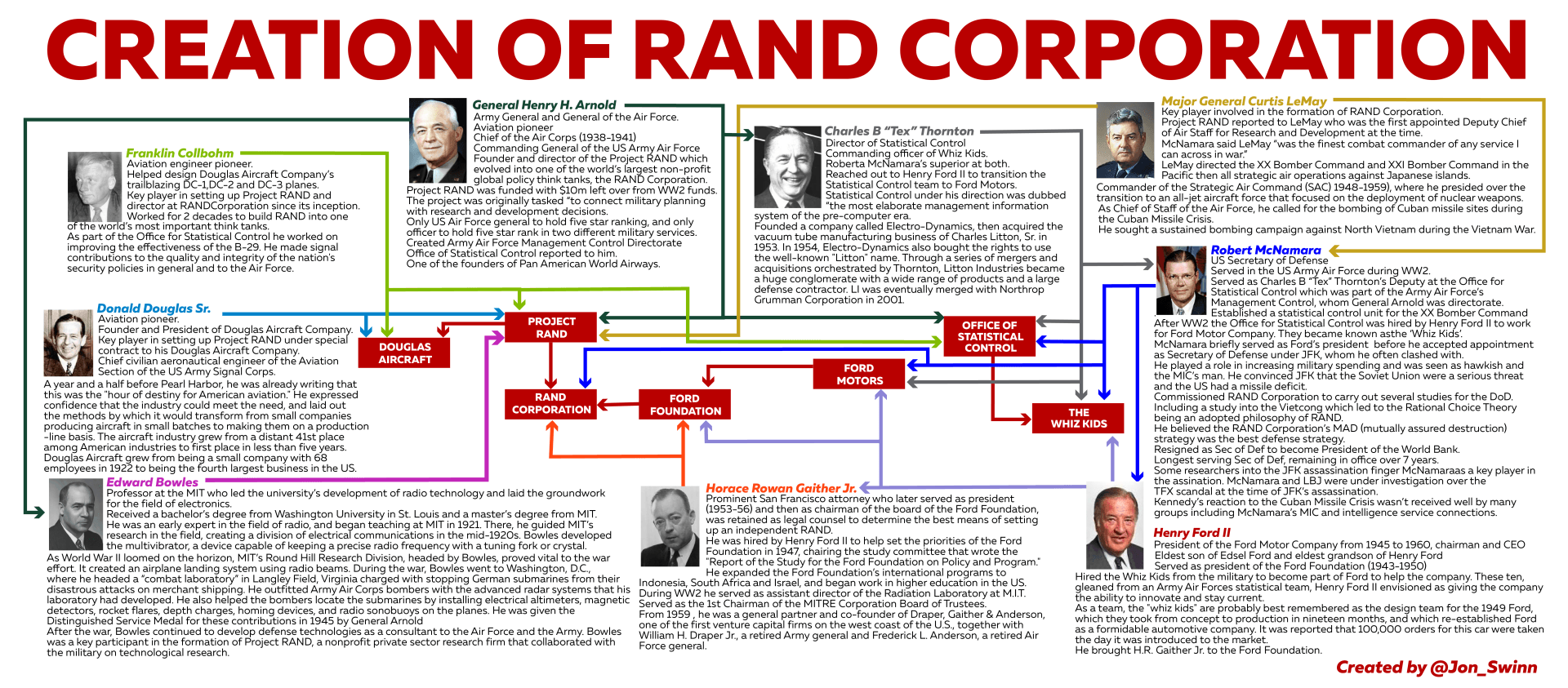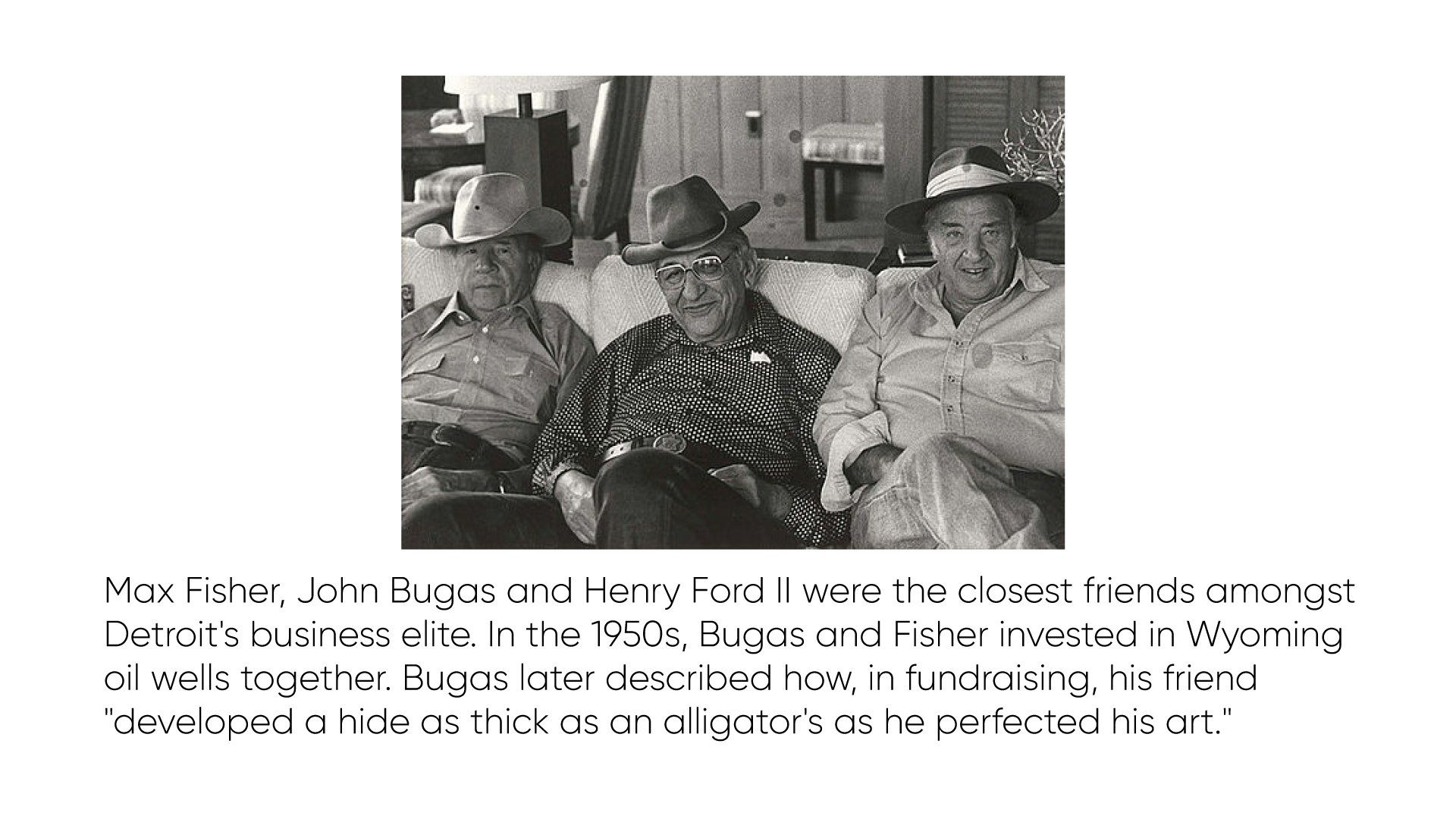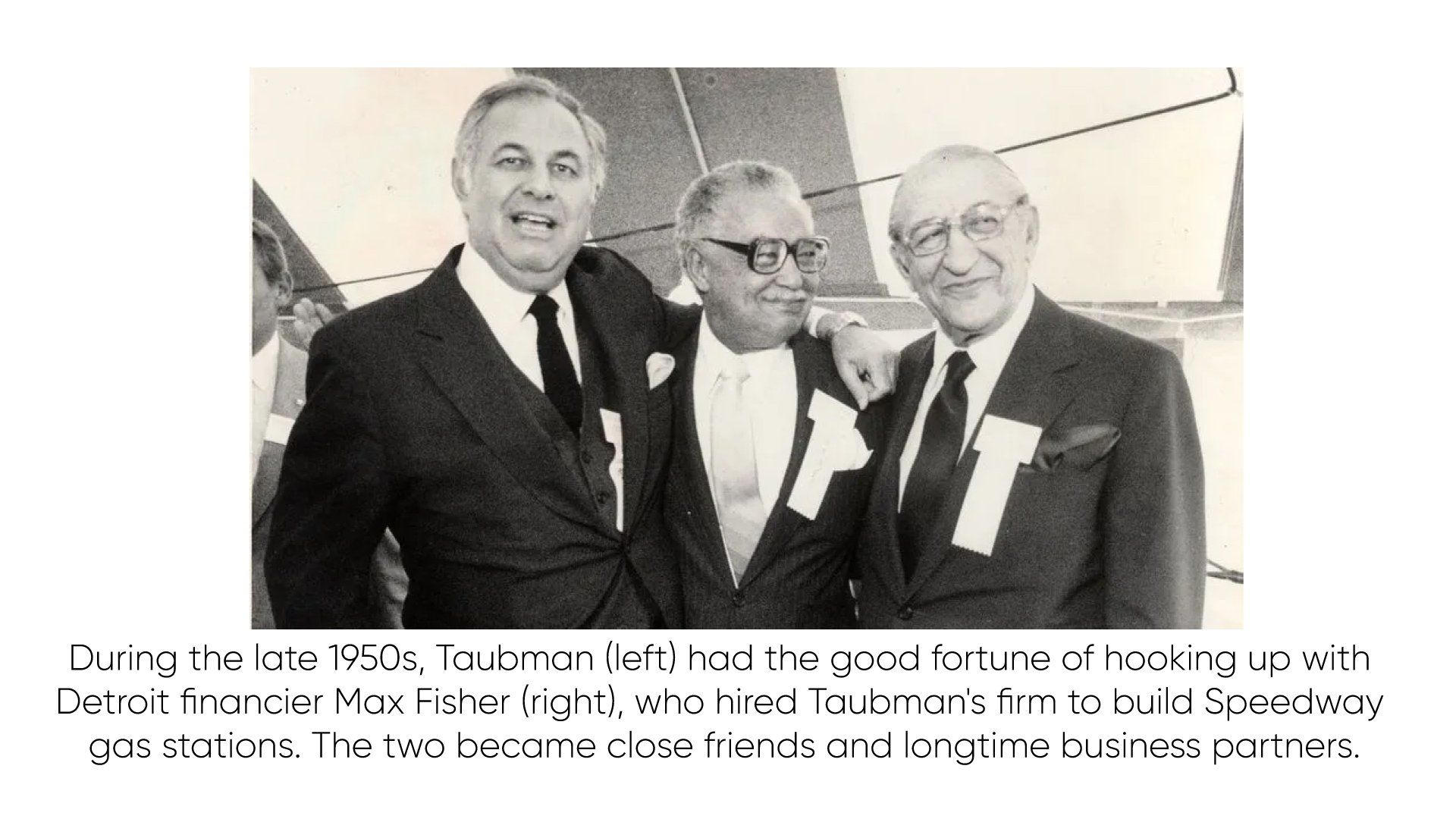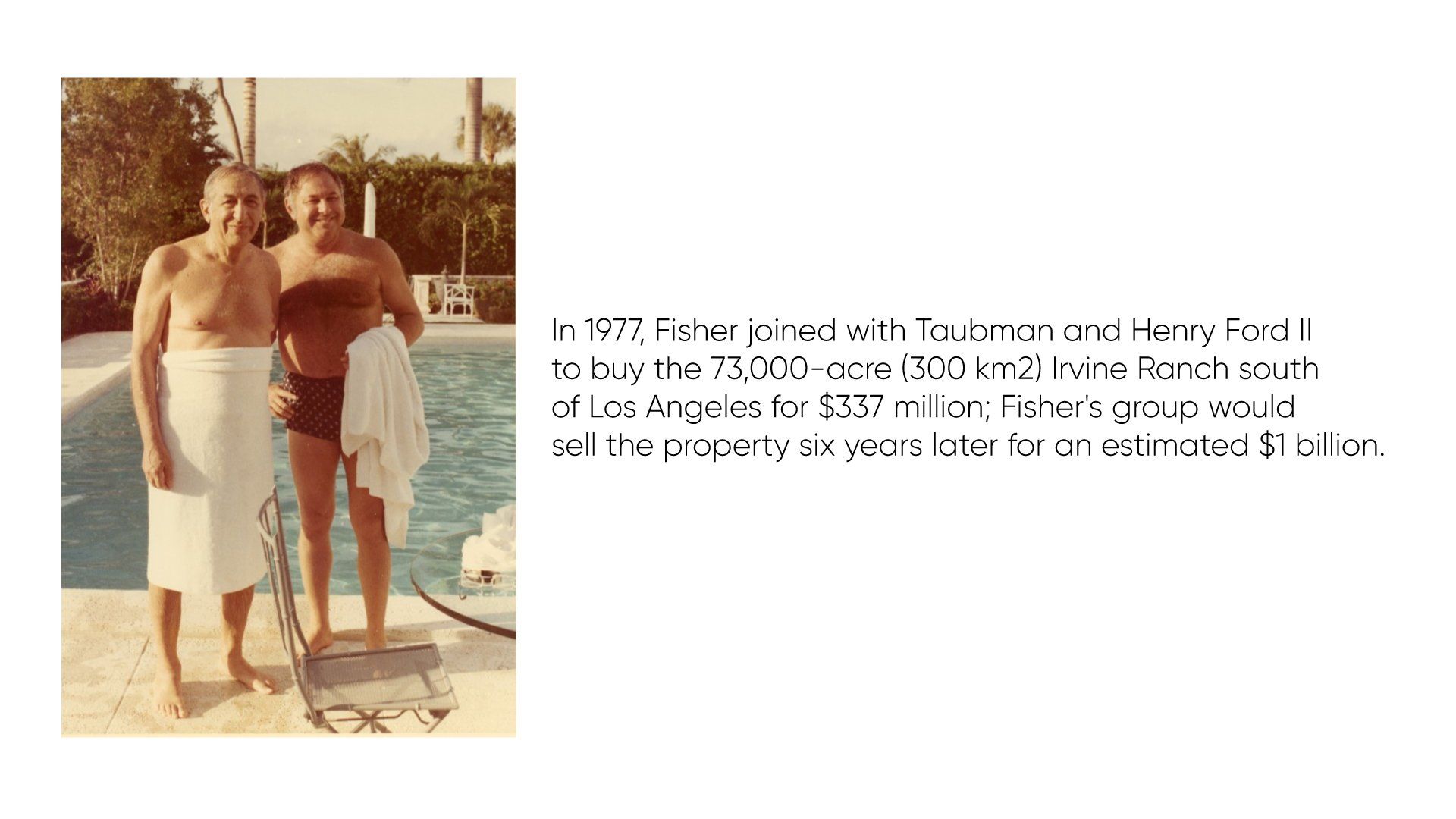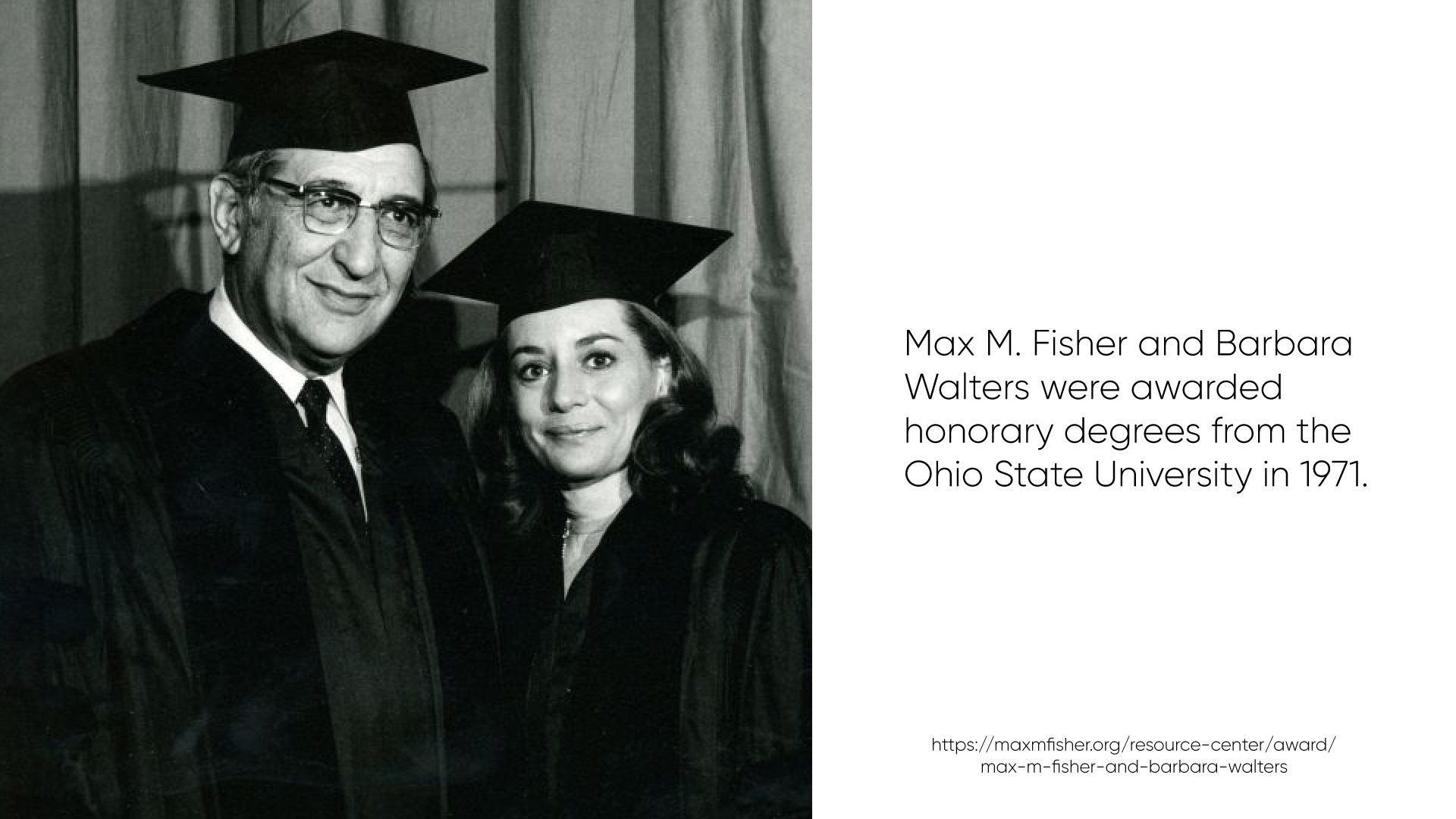MAX M. FISHER
MAX FISHER & US PRESIDENTS
Eisenhower and Fisher's discussion about the 1956 Suez Crisis defined the course of Fisher's political career.
Beginning in 1957, Fisher was hired into a position of greater respectability. Shell Oil Palestine, Ltd., Shell Chemical Palestine, Ltd., and Eilat Pipeline Company were sold to the Israeli-registered Paz Oil Company, and Fisher was allowed to buy one-third interest in Paz. An equal share was simultaneously purchased by the Swiss-Israel Trade Bank, whose managing director was Julius Klein. Closely linked to Swiss-Israel Trade Bank was Banque de Credit Internationale (BCI), implicated in the early-1960s Permindex assassination attempts against Charles de Gaulle as well as the murder of President John F. Kennedy
As established above, Nixon was familiar with Republican donor Fisher before his presidency began.
For President Nixon Max Fisher served as an unofficial ambassador to Israel. "Mr. Fisher was our dominant nongovernmental adviser on American-Israeli affairs," said a Nixon White House staffer.
In 1970, Max Fisher and Jewish leaders meet with congressmen and Secretary of State William Rogers to discuss the fate of Soviet Jews who are trying to immigrate to Israel. Nixon agrees to meet with the group and arranges for death sentences hanging over the "Leningrad 11" to be commuted. The sentences came after two Soviet Jews were found guilty of treason and were caught plotting to hijack an airliner with the goal of somehow flying to Israel without being intercepted.
Below : Fisher with Israeli Ambassador Yitzhak Rabin and President Richard Nixon
Rabin wrote: "Israel is not alone, provided it knows how to harness the support of its friends, Jewish and non-Jewish, in a discreet and judicious manner. From Max Fisher I always received great support; the door of the White House is always open to him and in time of need, Max moves its hinges."
Max M. Fisher with President Jimmy Carter. Israeli Prime Minister Menachem Begin is in the background, with his wife Aliza to his left in sunglasses at the White House dinner in celebration of the signing of the Israeli - Egyptian Peace Treaty
George H. W. Bush had worked closely with Max Fisher as Ronald Reagan's Vice President throughout the 1980s. When he became president Max Fisher continued to serve as an adviser for Jewish interests, particularly on the issues of emigrating Soviet and Ethiopian Jews in the late 80s and early 90s.
FISHER & ISRAELI OFFICIALS
FISHER & KISSINGER
As National Security Adviser and Secretary of State to consecutive Republican presidents Nixon and Ford, Henry Kissinger worked closely with Max Fisher, who acted as an unofficial ambassador to Israel. A fellow Jewish American leader, Kissinger was sympathetic to Fisher's appeals for the interests of Israel, and the two remained lifelong friends outside of politics.
Max Fisher meets with President Gerald Ford, Secretary of State Henry Kissinger and Donald Rumsfeld to convey his concern about the reassessment of US policy toward Israel. Fisher had recently returned from a visit to Israel and had met with Prime Minister Yitzak Rabin. The meeting helped Ford and Kissinger understand that their goals for Middle East peace were shared by Israeli leaders.
FISHER & HENRY FORD II
The fact that Ford II was on the board of Aurora Oil would further indicate his families involvement with Aurora Oil. The closeness of the relationship between Ford II and Fisher suggest a long standing and close relationship. This is further emphasized by this memoir and tribute to their relationship by Henry's son, Edsel B. Ford II.
Henry Ford II presents a check to Max M. Fisher and the United Jewish Appeal
The two men had a prominent relationship with Israel. The two visited Israel together as documented in the photographs below.
Above : Fisher & Ford II visit the Wailing Wall in Jerusalem.
Following the visit to Israel, Henry Ford II was actively seeking to assist Israel in their equipment needs as documented in the story below.
This however wasn't the beginning of Henry Ford II's relationship with Israel.
Fisher himself had a friendship with David Ben-Gurion. He had the honor of presenting him a gift for his 80th birthday.
Now that the clear links between Henry Ford II, Israel and the American Jewish leadership have been established, it is necessary to consider the influence those relationship have in context to the larger apparatus of powerful think tanks operated by Ford II and his right hand man, Horace Rowan Gaither Jr.
To learn more about these networks please click here for the information regarding the creation of RAND Corporation.
MAX FISHER, JOHN BUGAS AND HENRY FORD II
MAX FISHER & A. ALFRED TAUBMAN
UNITED BRANDS
In February 1975, United Brands (UB) Chairman of the Board Eli Black walked out of a window on the 44th floor of the Pan-American building in New York City. Within two months of his mysterious death, Max Fisher was appointed acting chairman of the company, and subsequently became its new Chairman of the Board. By 1975, Fisher and two of his close associates, Carl Lindner Jr. of Cincinnati and Seymour Milstein of New York City, held a total of 48 percent of the stock of U B and its subsidiary companies. Fisher's appointment was sponsored by two individuals: Sol Linowitz and Donald R. Gant, a Goldman Sachs partner and Henry Kissinger associate. The Carter administration's special envoy for Panama Canal treaty negotiations, Linowitz was a international policy adviser to Maritime Fruit Company, the Israeli counter part to United Brands, and sits on the board of Marine Midland Bank, which in 1979 merged with the Hong Kong and Shanghai Banking Corporation, long the central clearinghouse bank for the Golden Triangle Far Eastern heroin trade. One of Fisher's first actions as board chairman was to appoint Bert C. Reiss as Vice-President in charge of transportation. Reiss came from National Bulk Carriers Corporation (NBC), a firm involved in shipping and construction throughout Latin America. NBC is owned by Daniel K. Ludwig, an associate of Meyer Lansky who, was responsible for the harbor-dredging project that led to the building of the scandal-ridden Paradise lsland. Once at UB, Reiss excluded all non-company cargo from United Brands ships and from its New Orleans port facilities, throwing a shroud of total secrecy around the company's Caribbean/Central American shipping activities. Read more here
OHIO STATE UNIVERSITY
Fisher leveraged around $20 million to finance The Ohio State University's Fisher College of Business for development of a new six-building business campus that opened in 1998. An additional pledge of $5 million was given to the Fisher College of Business in February 2005 to support Master of Business Administration programs.

